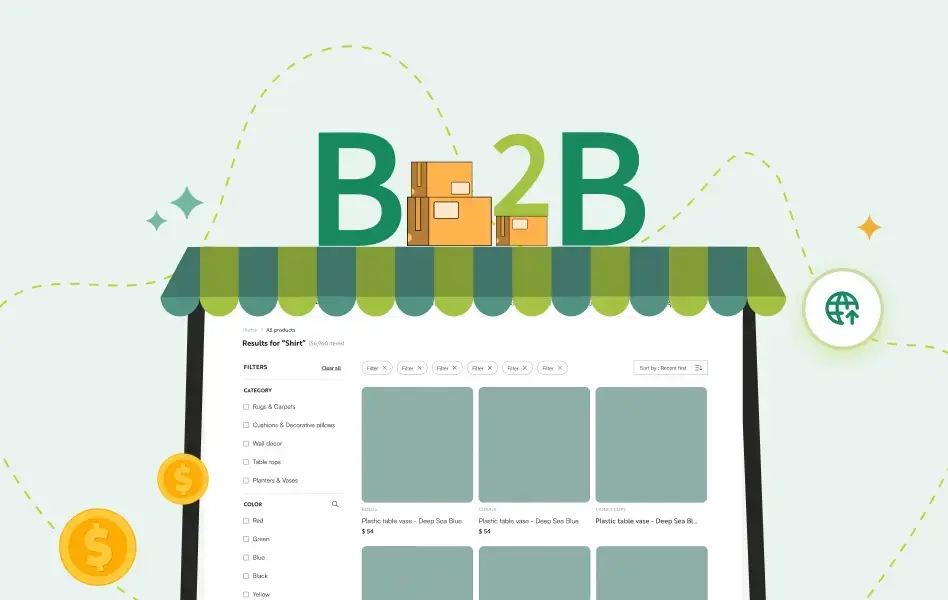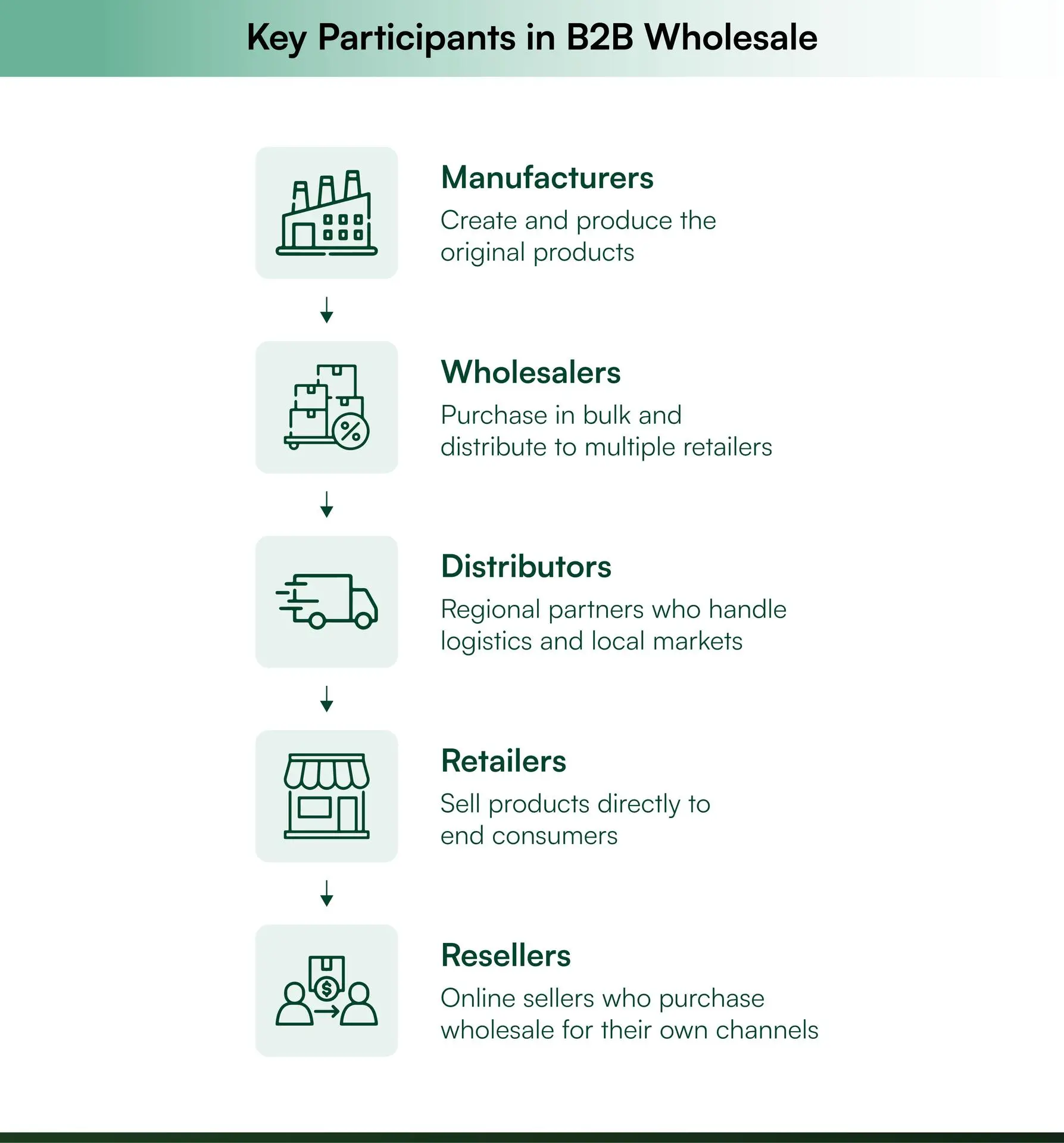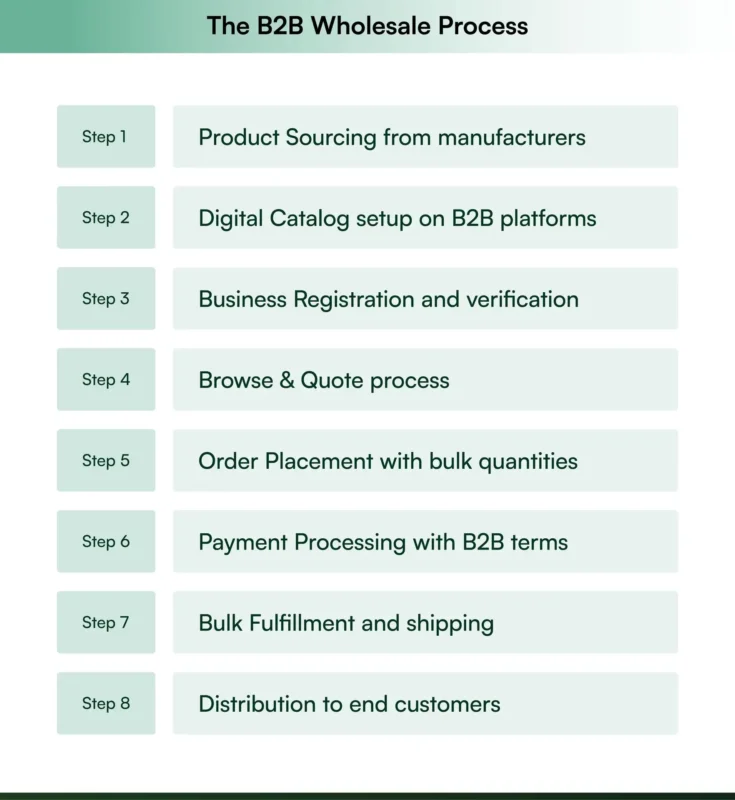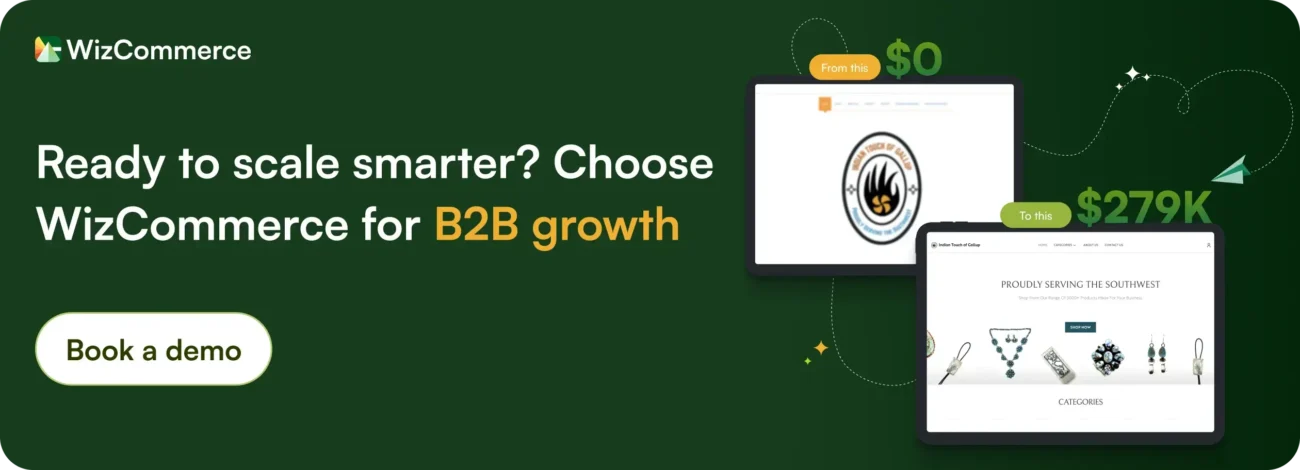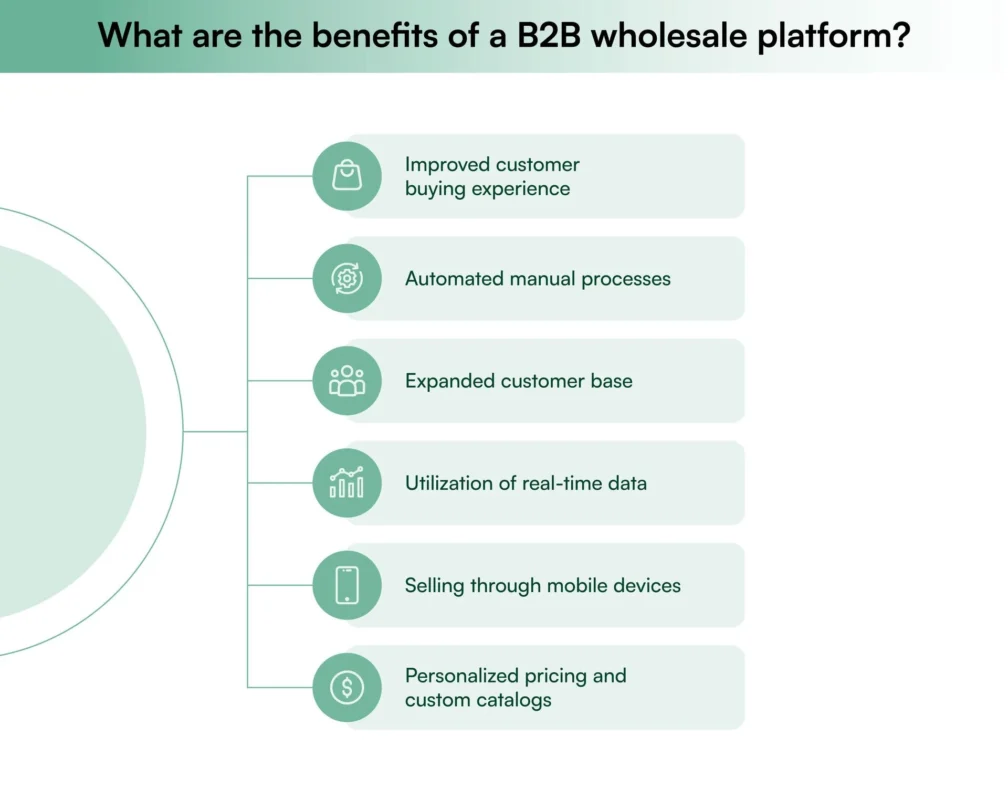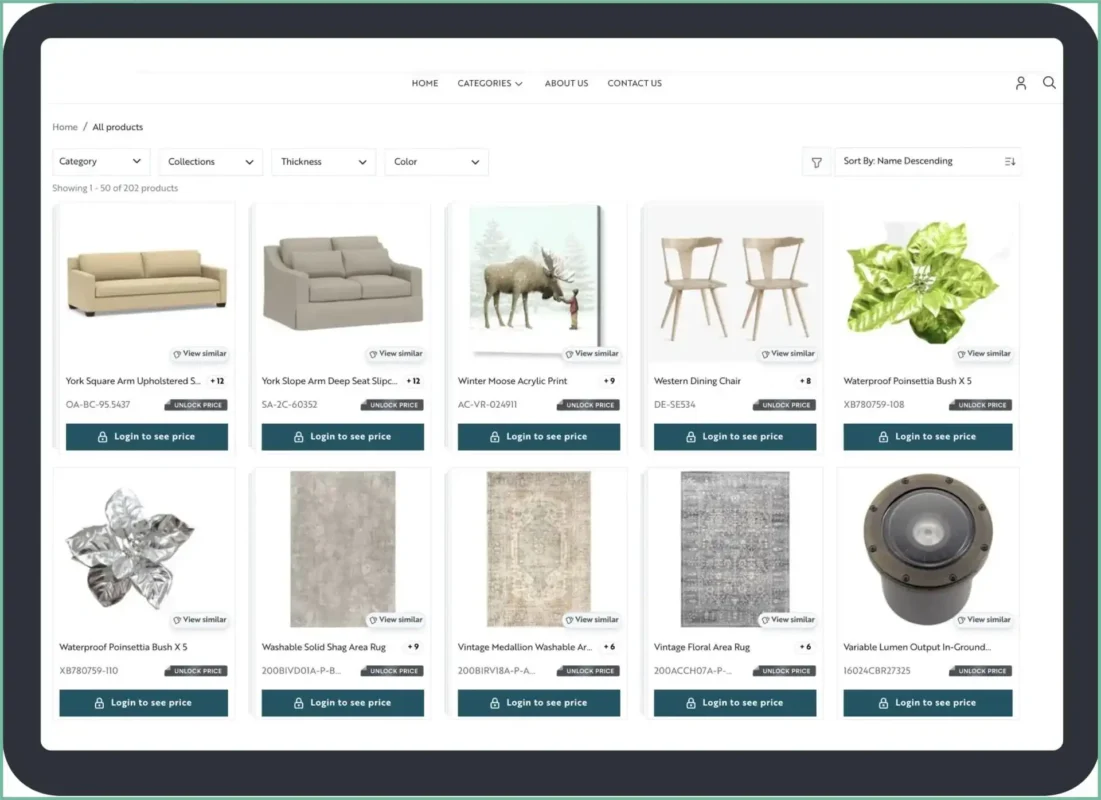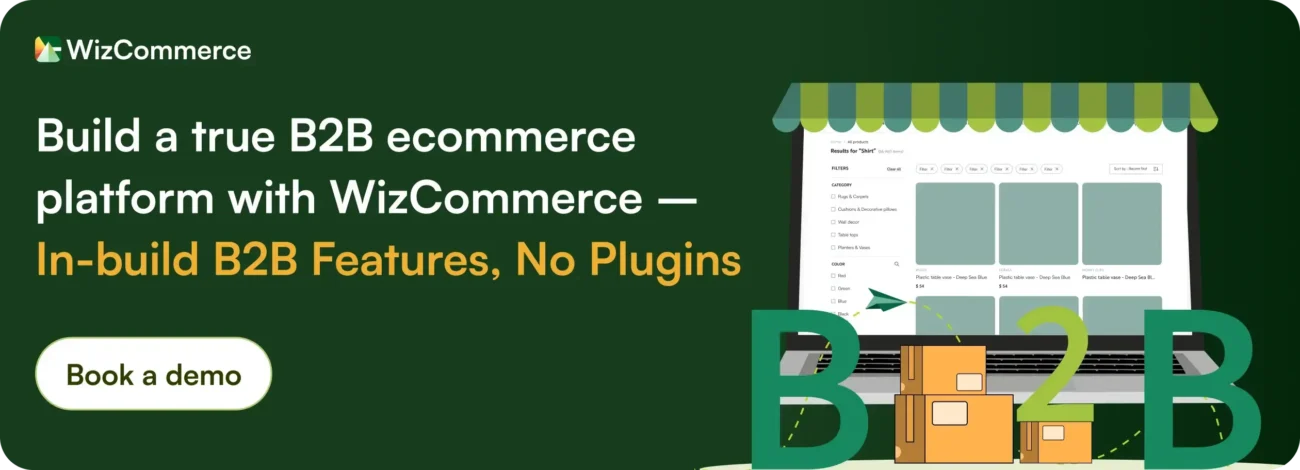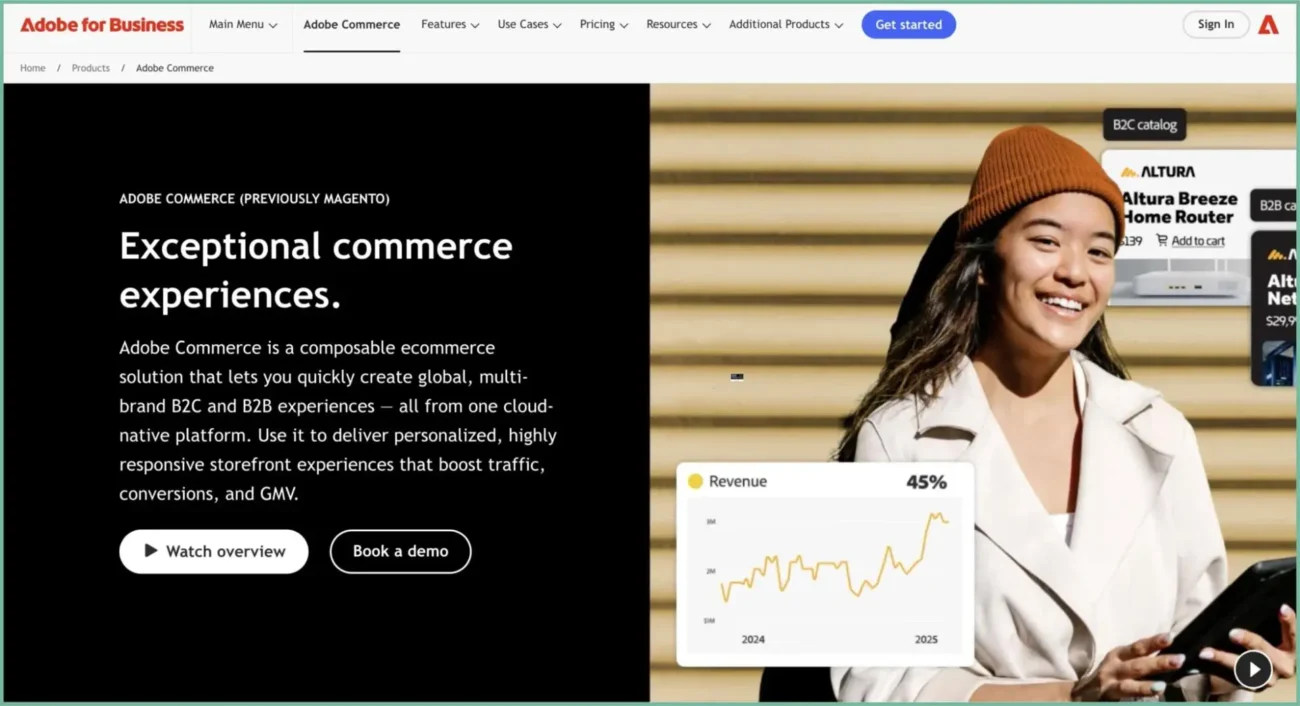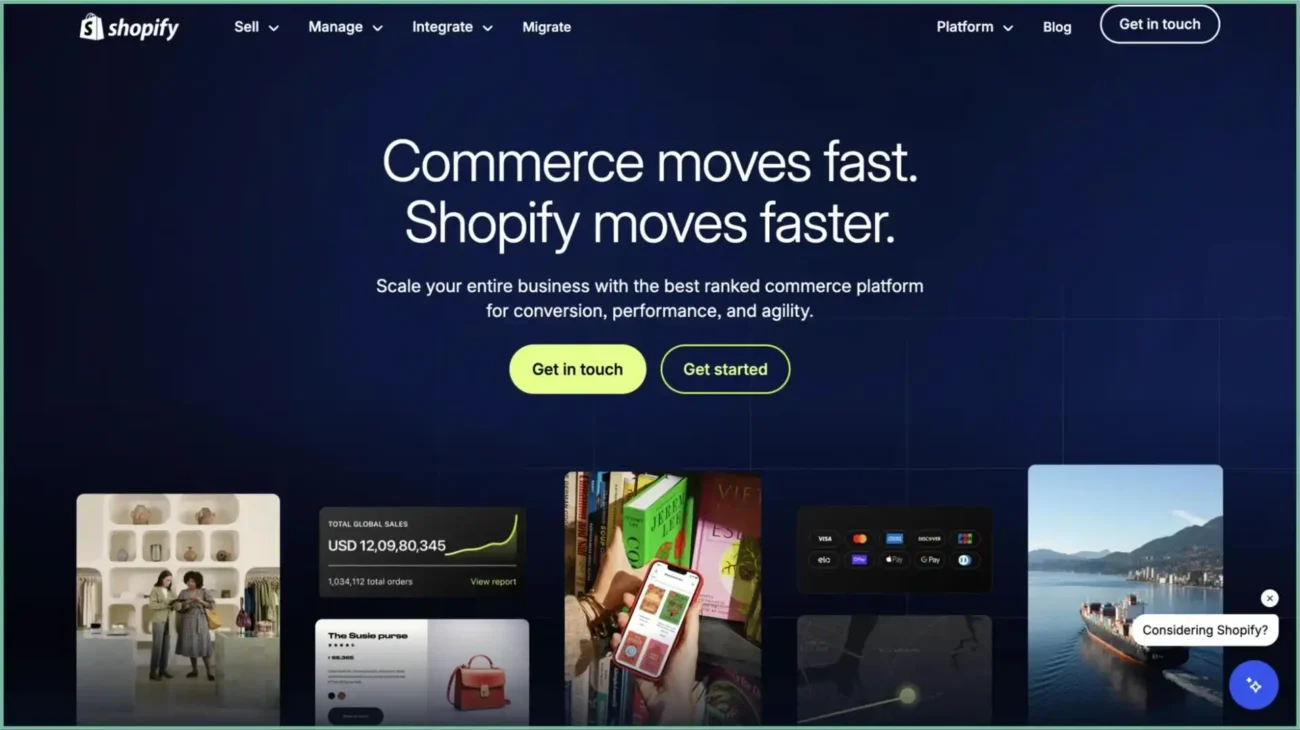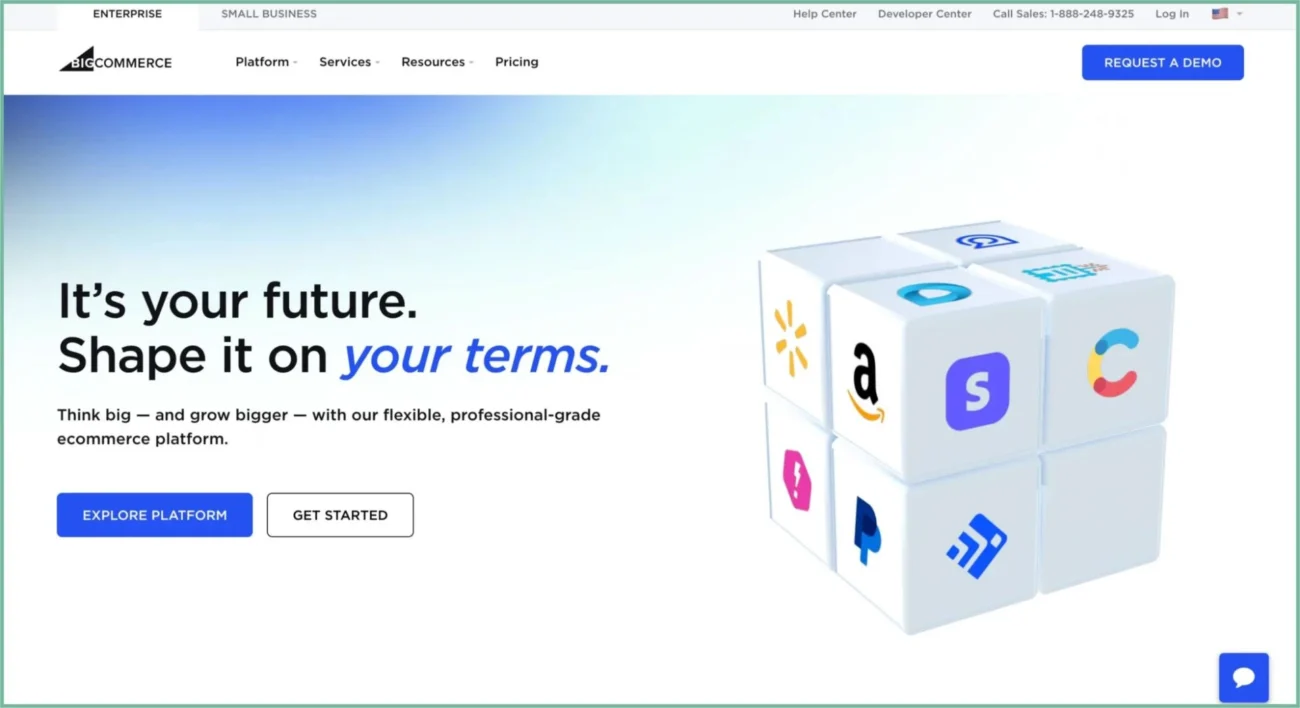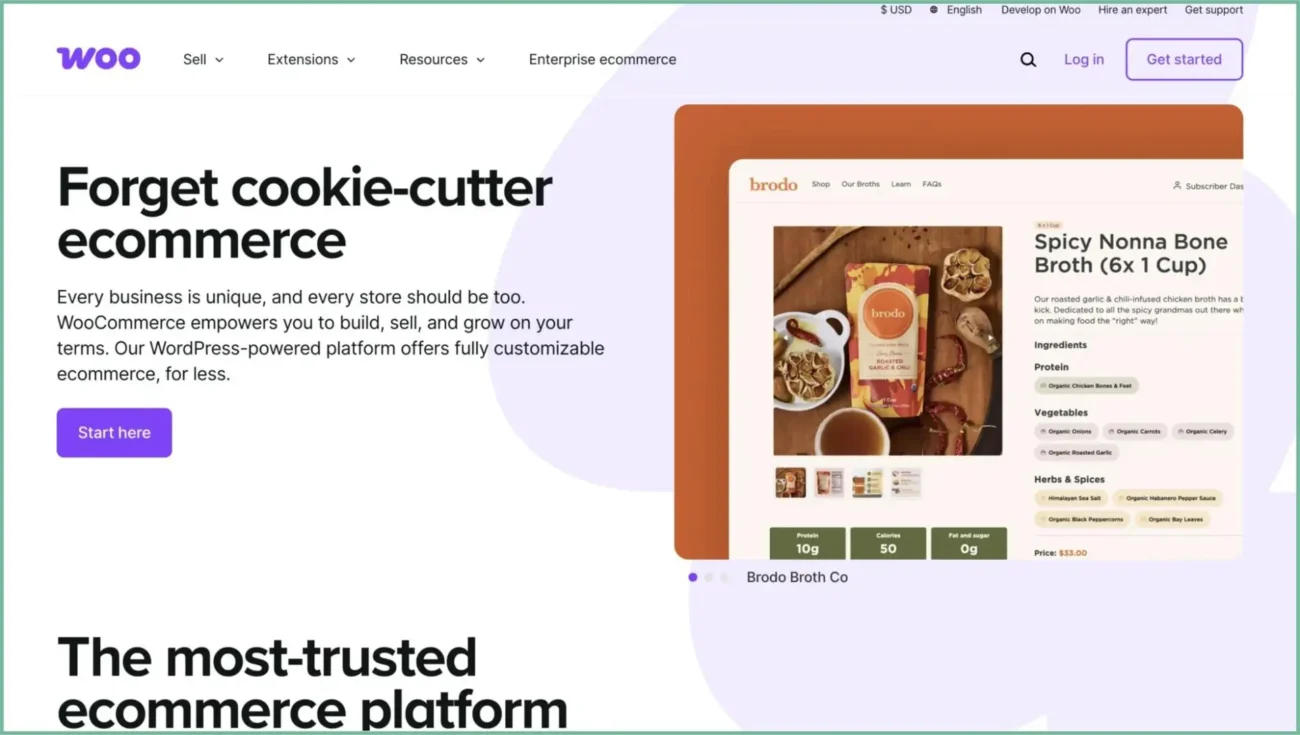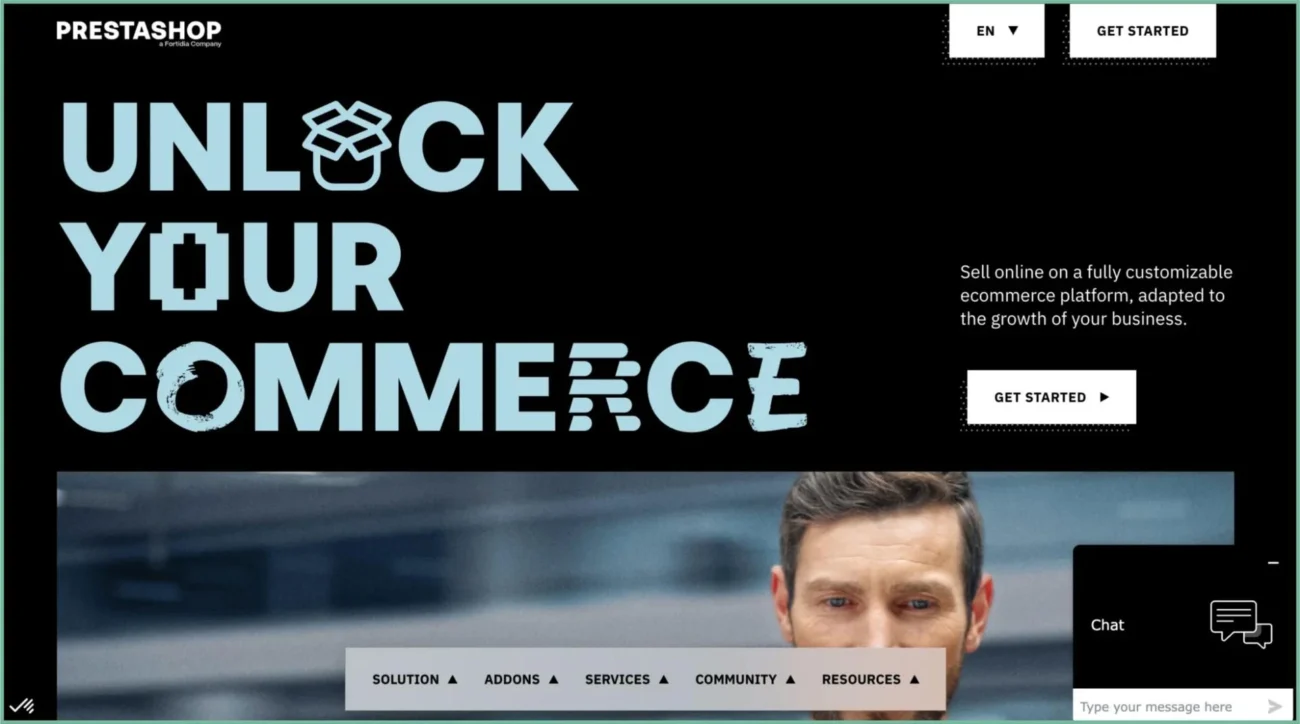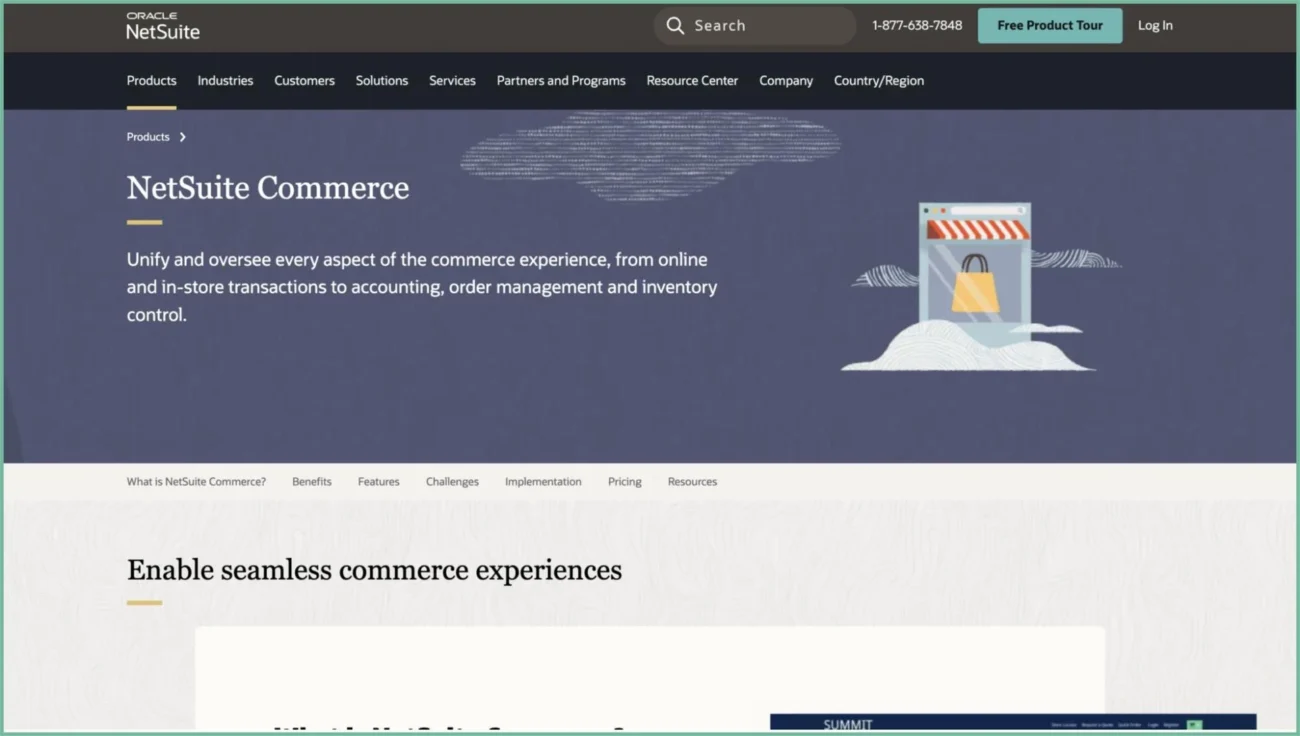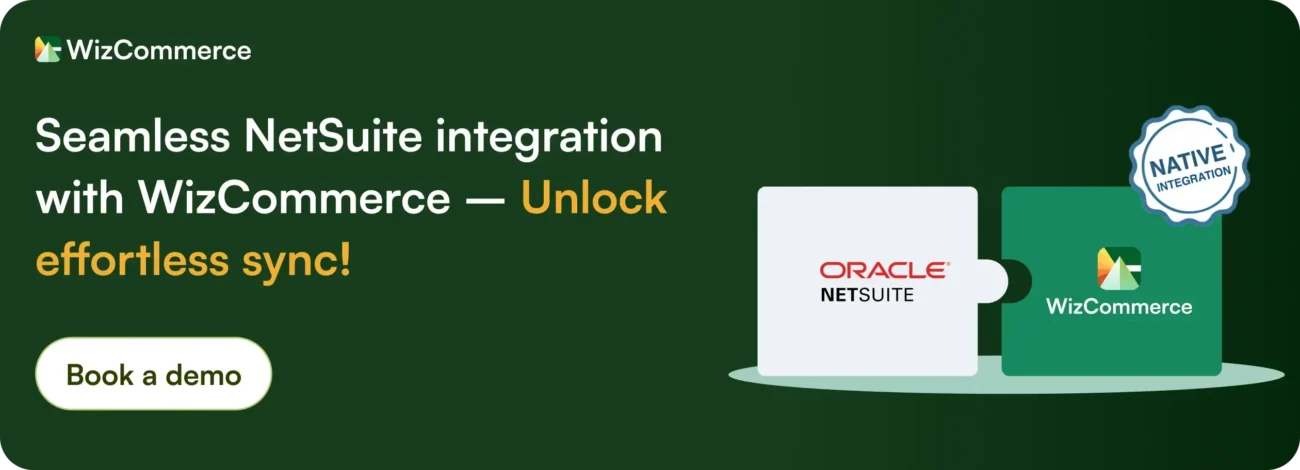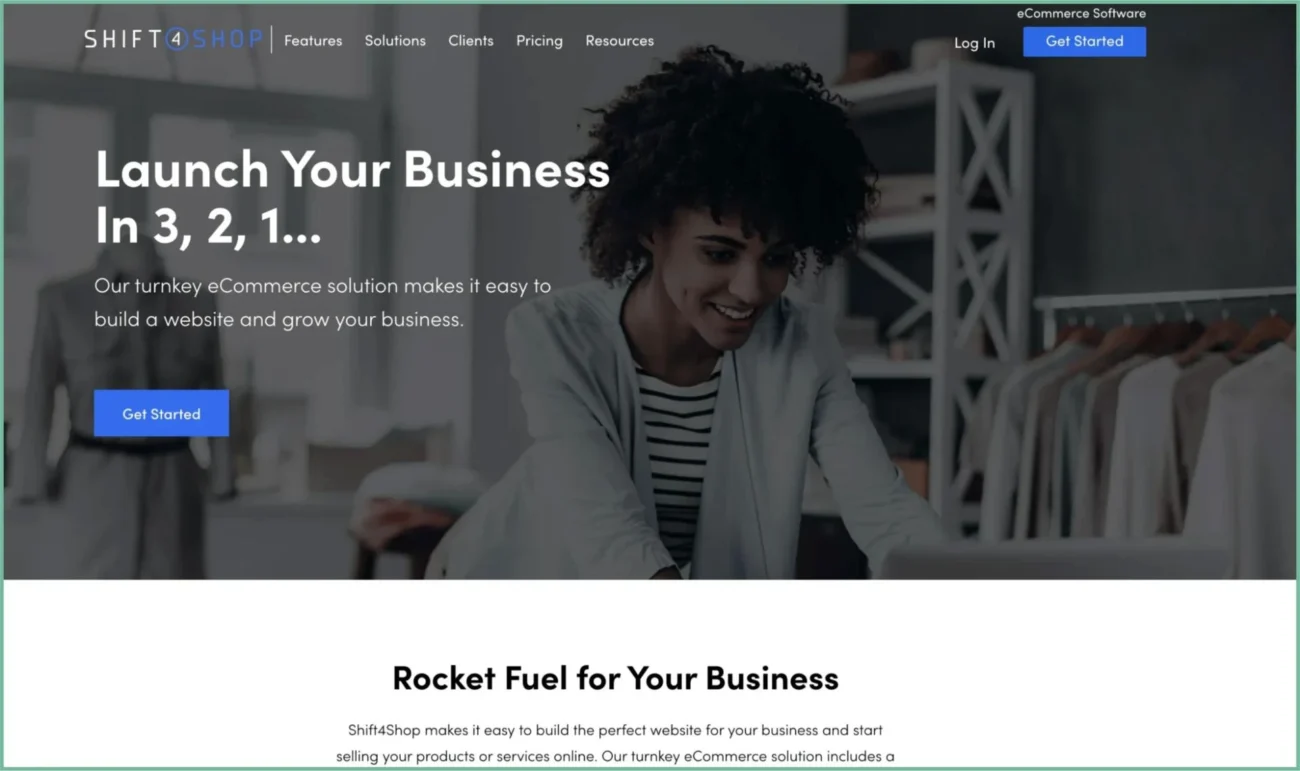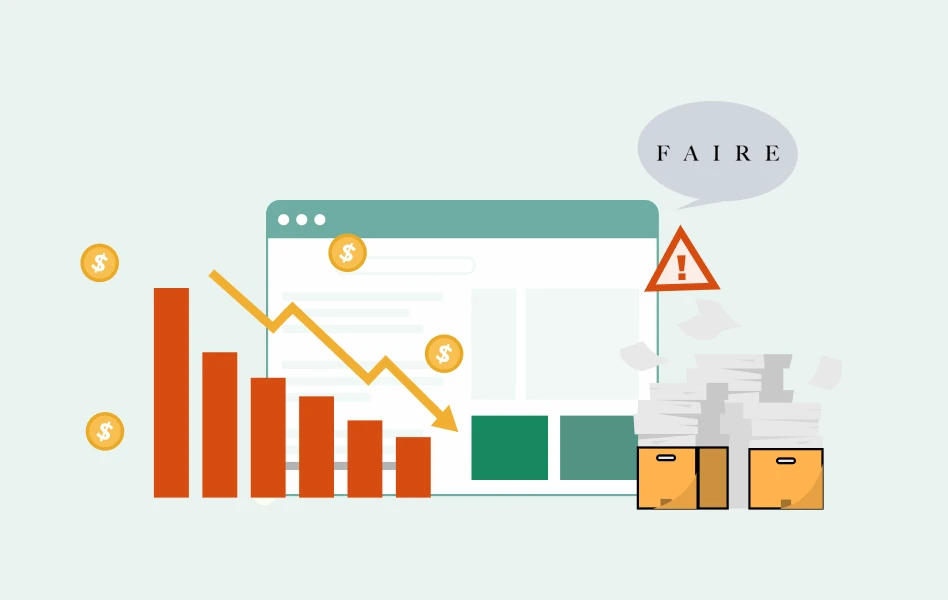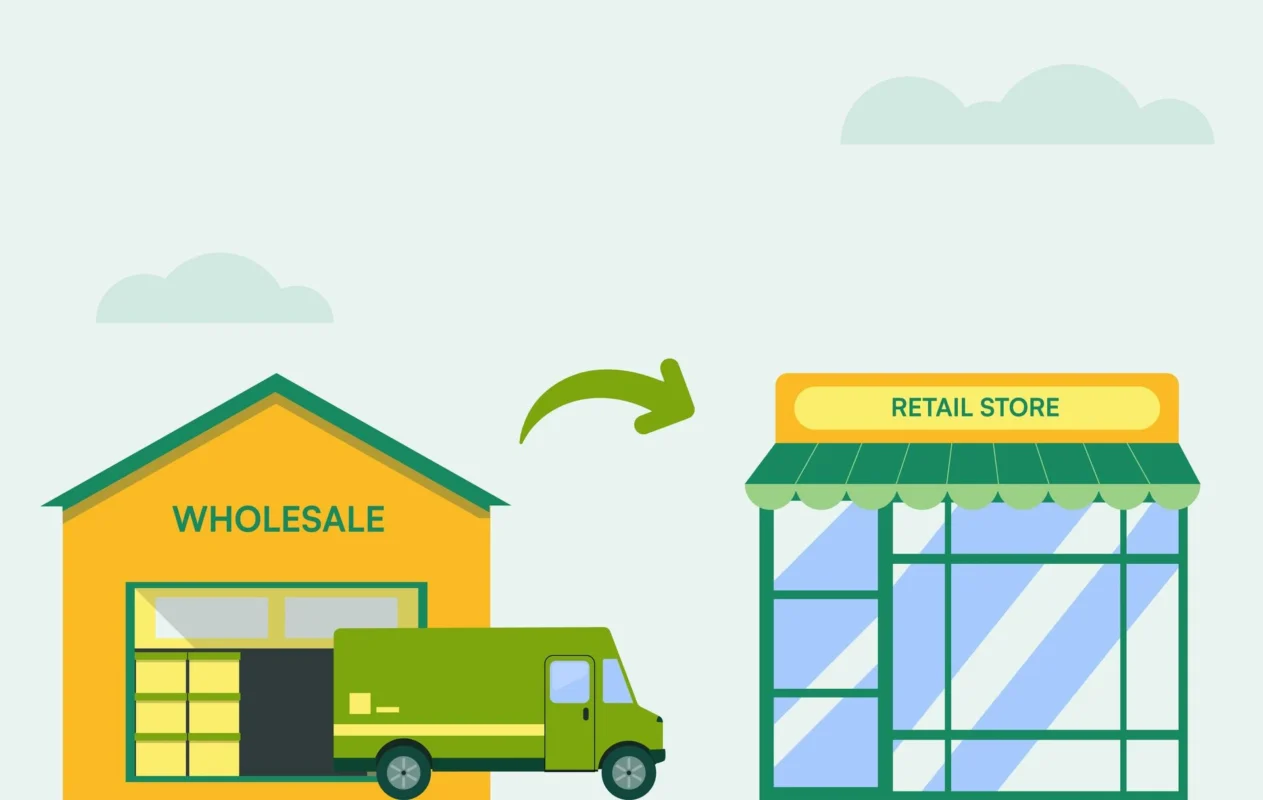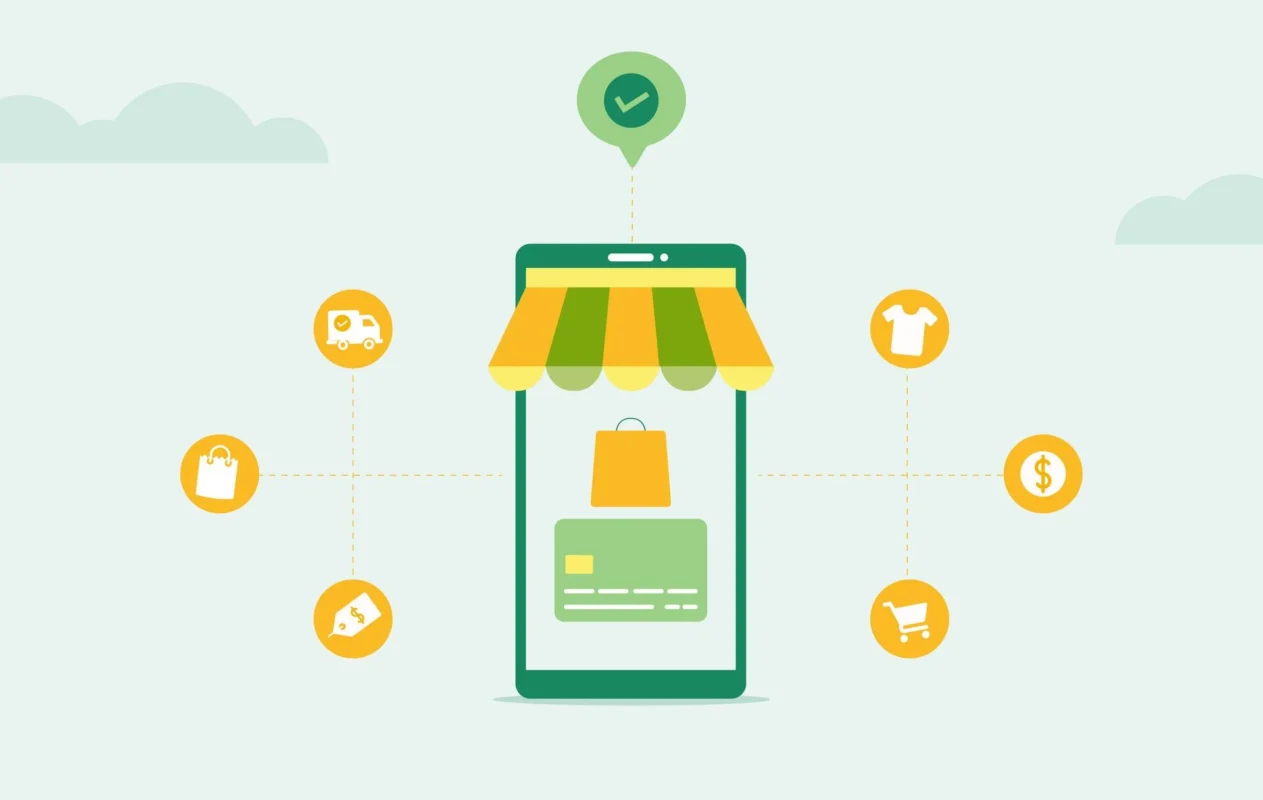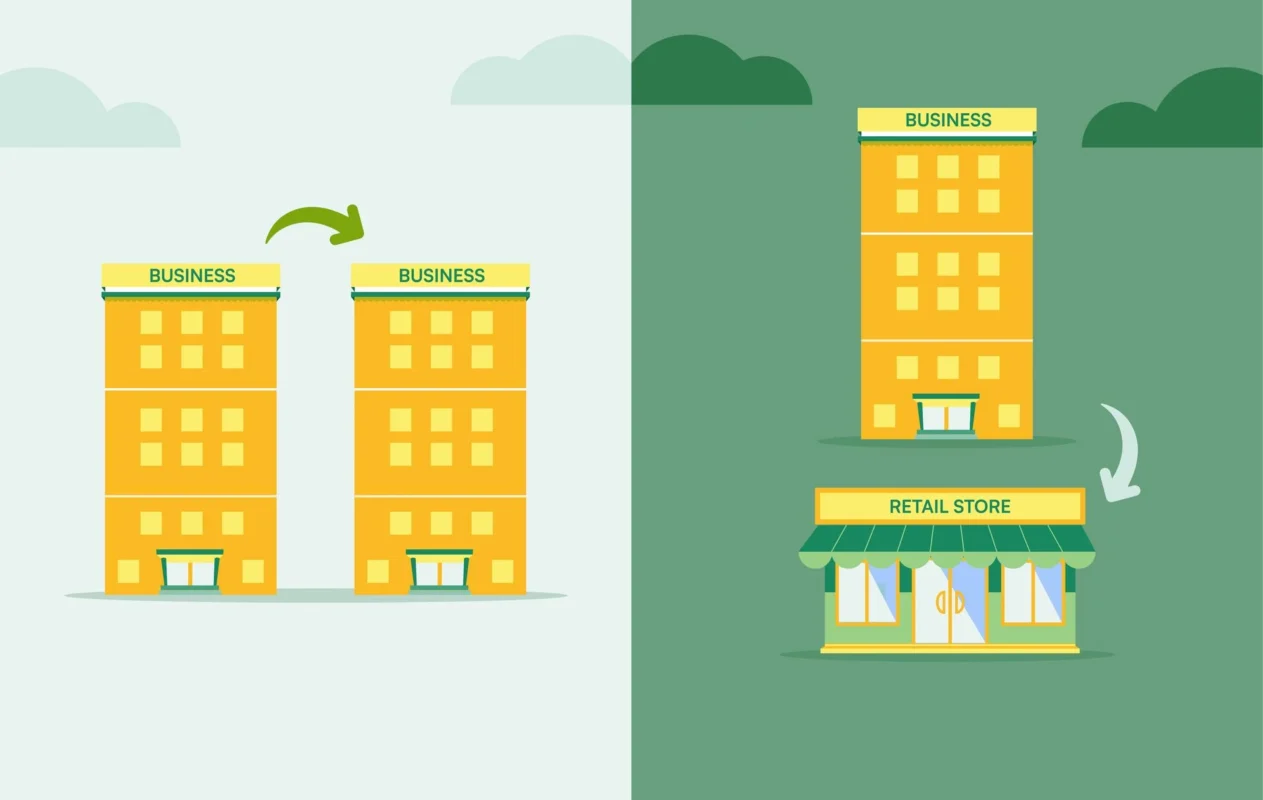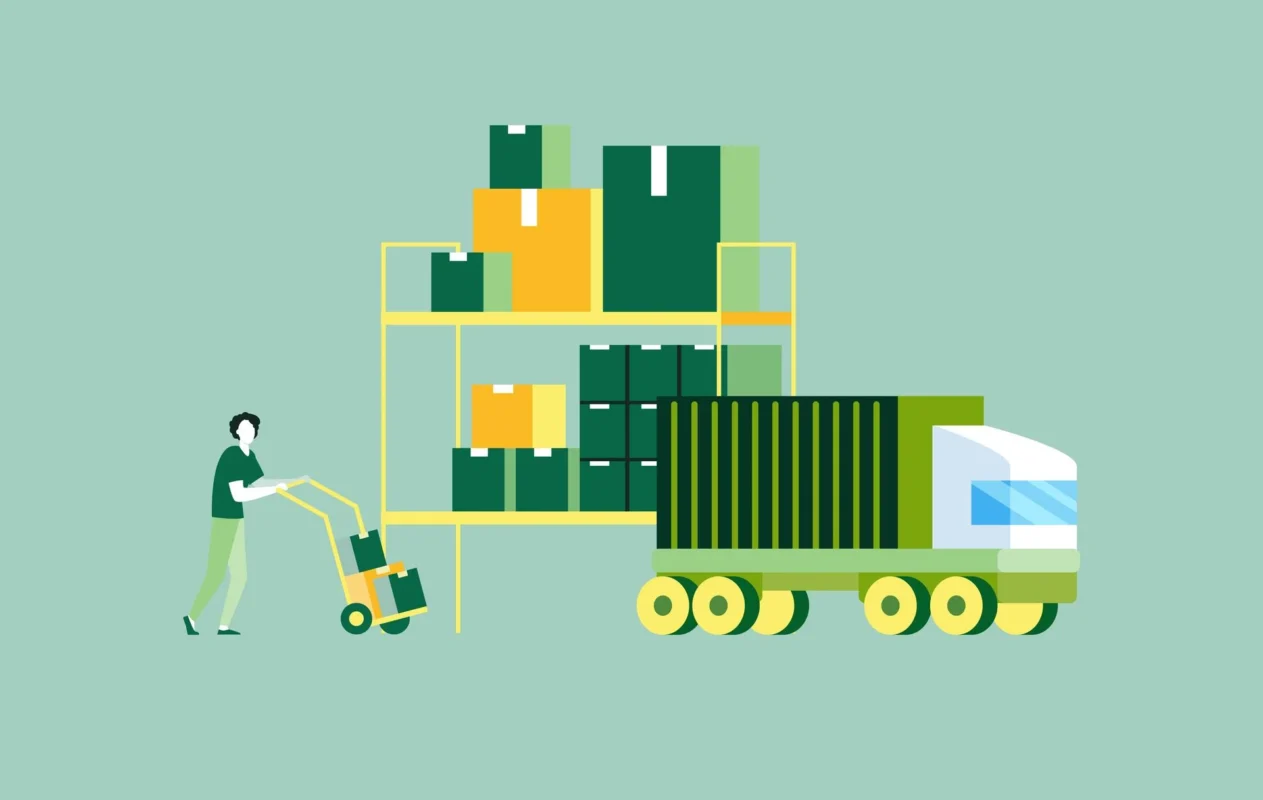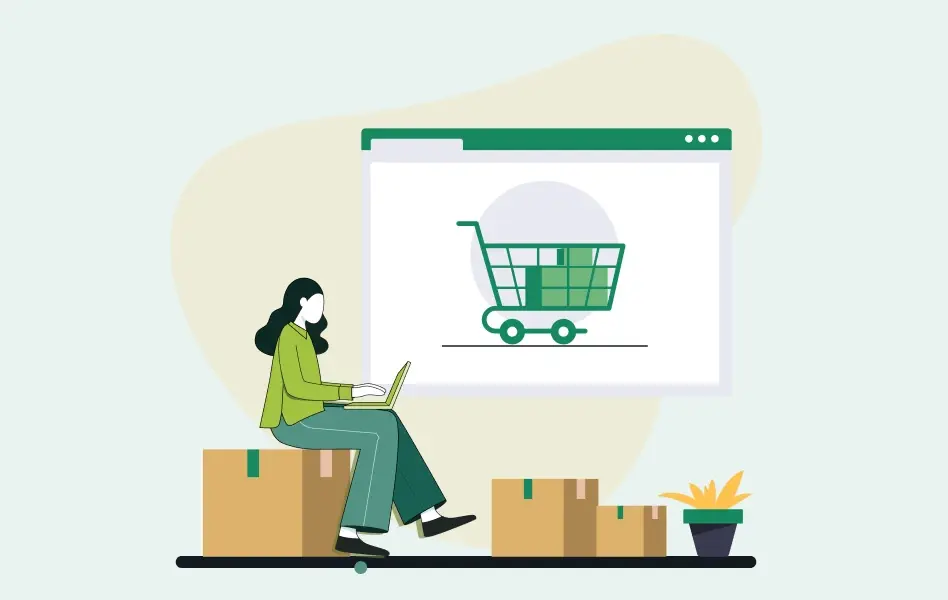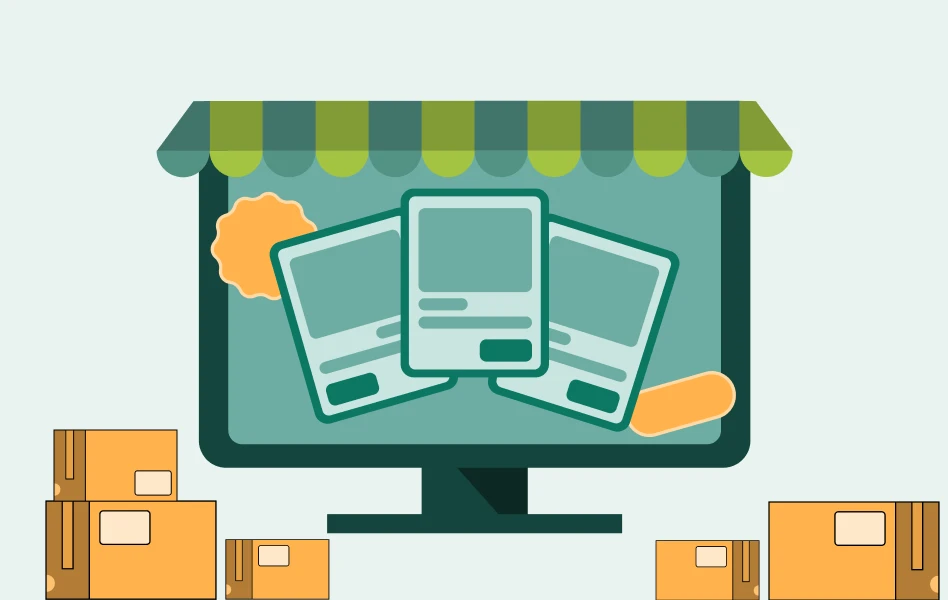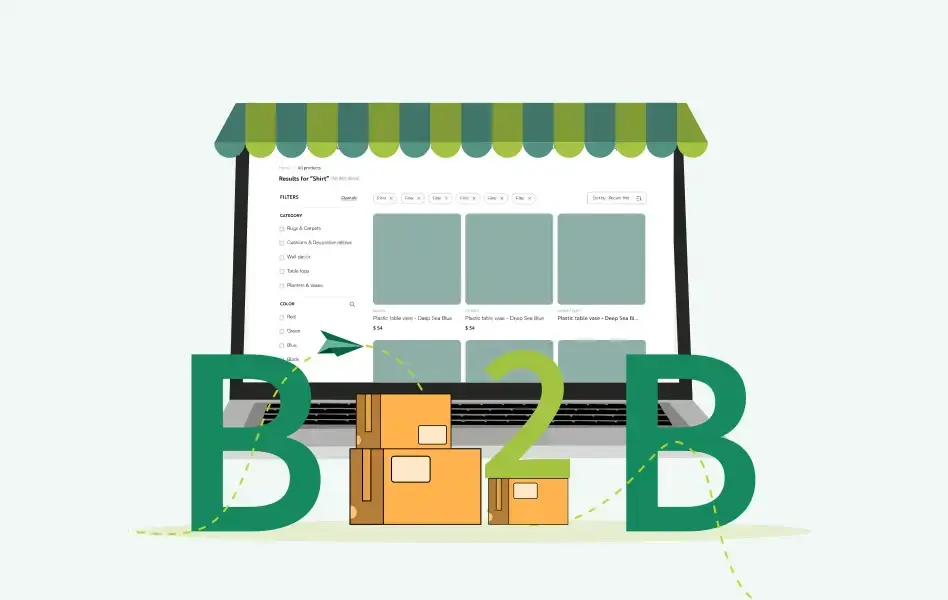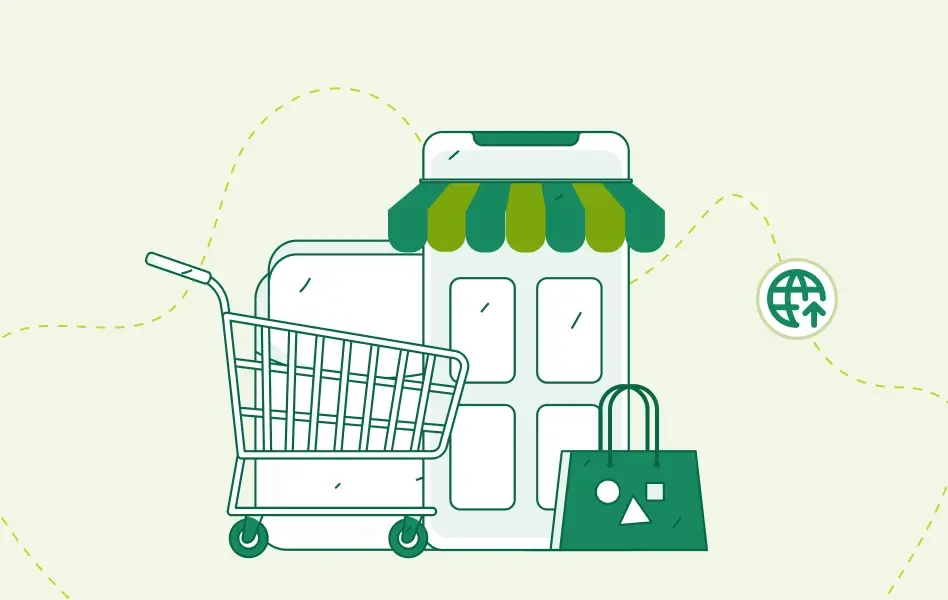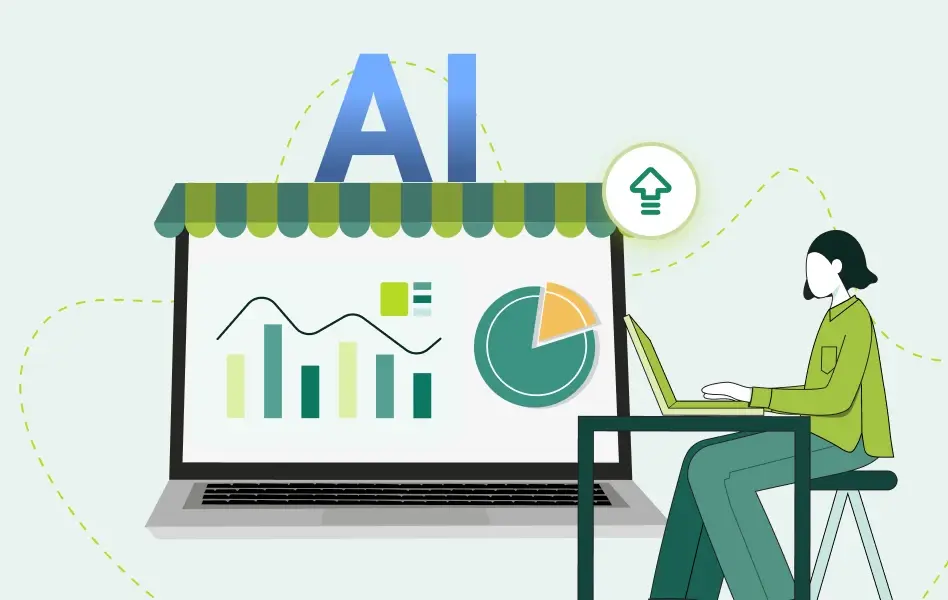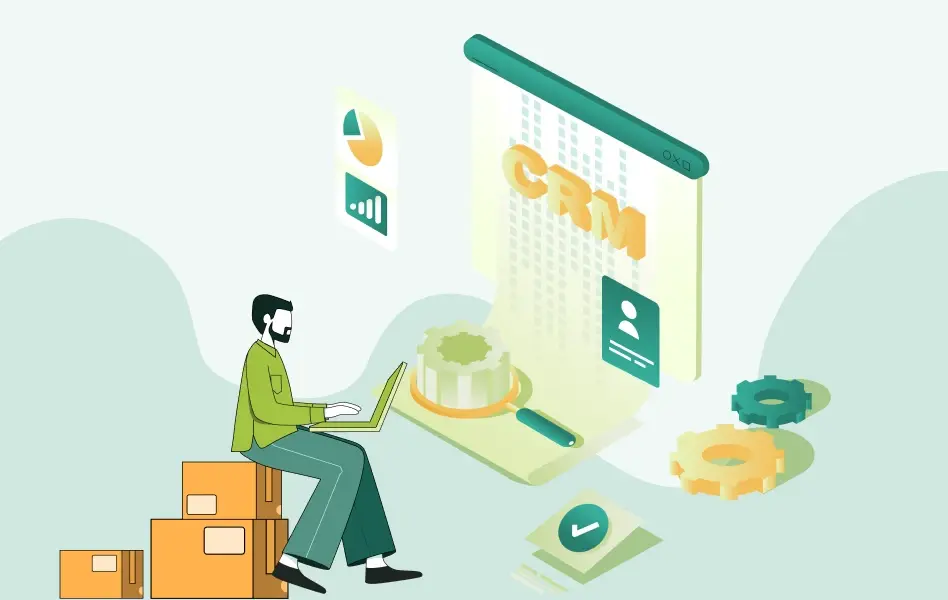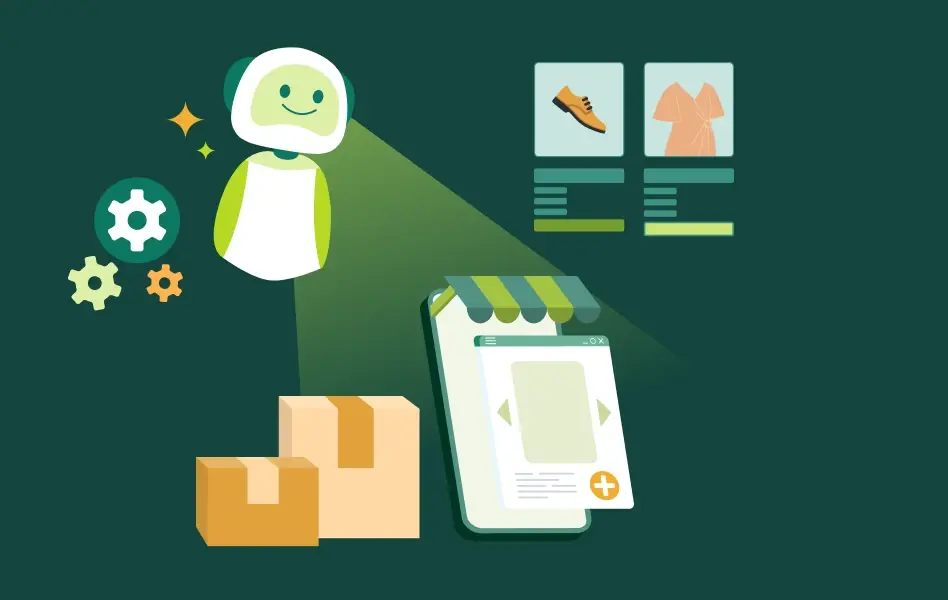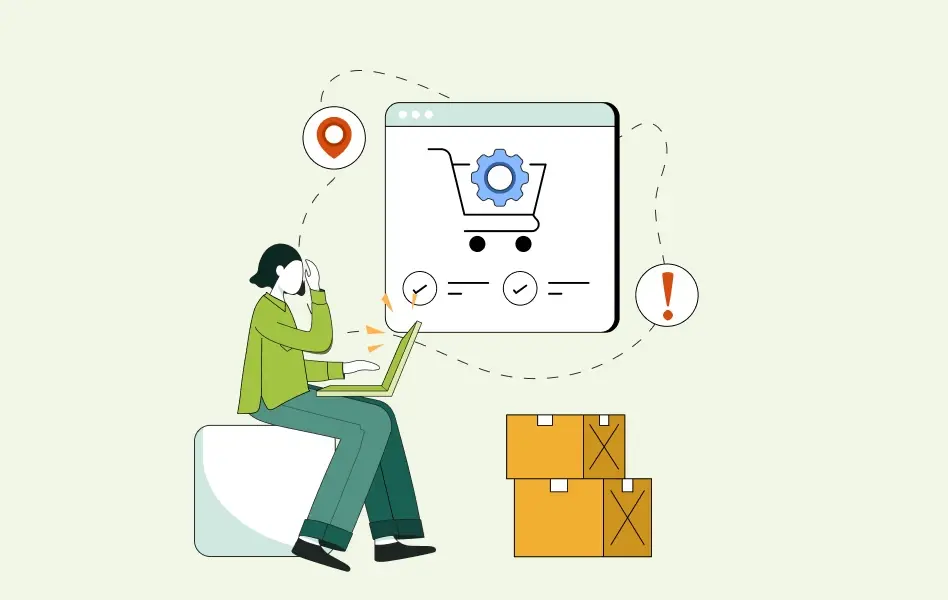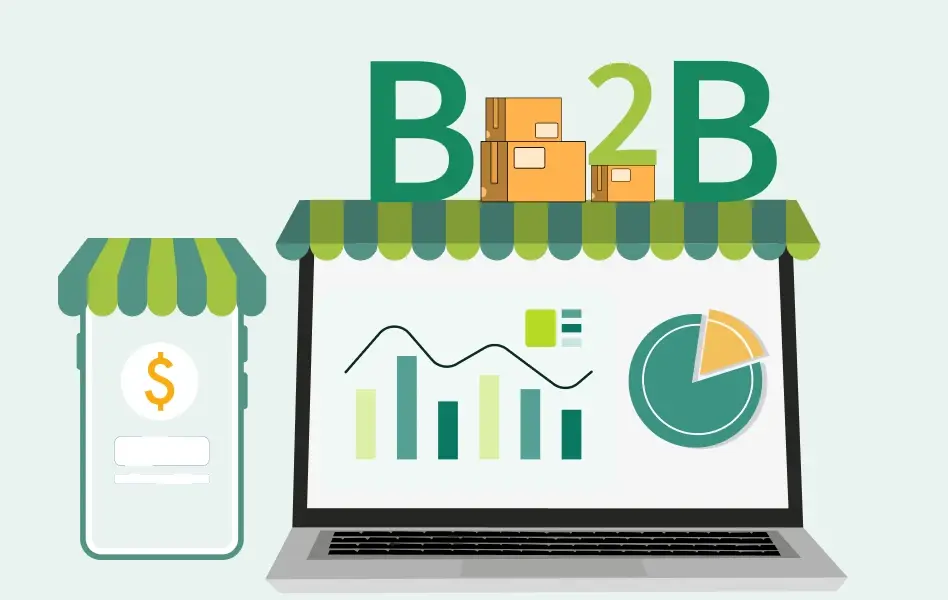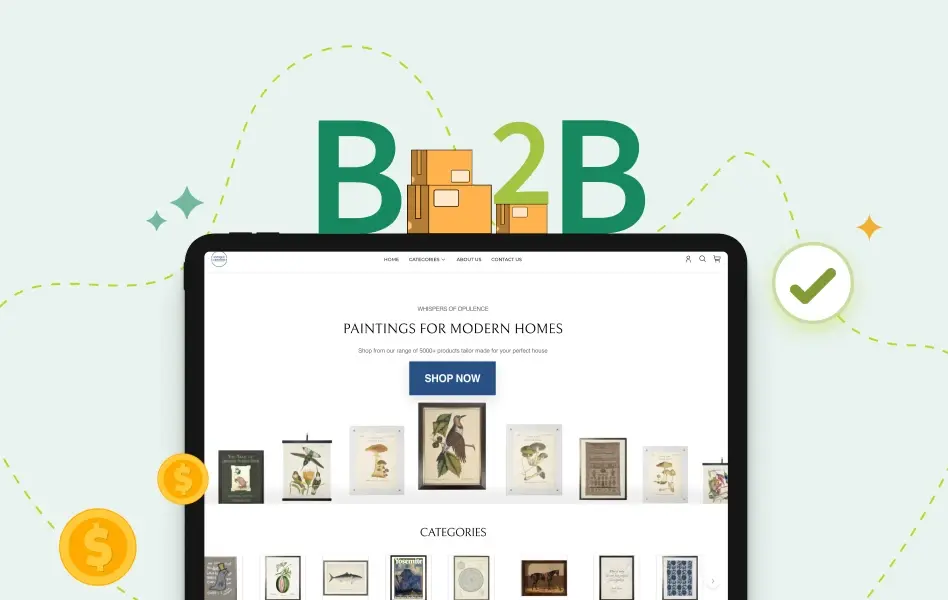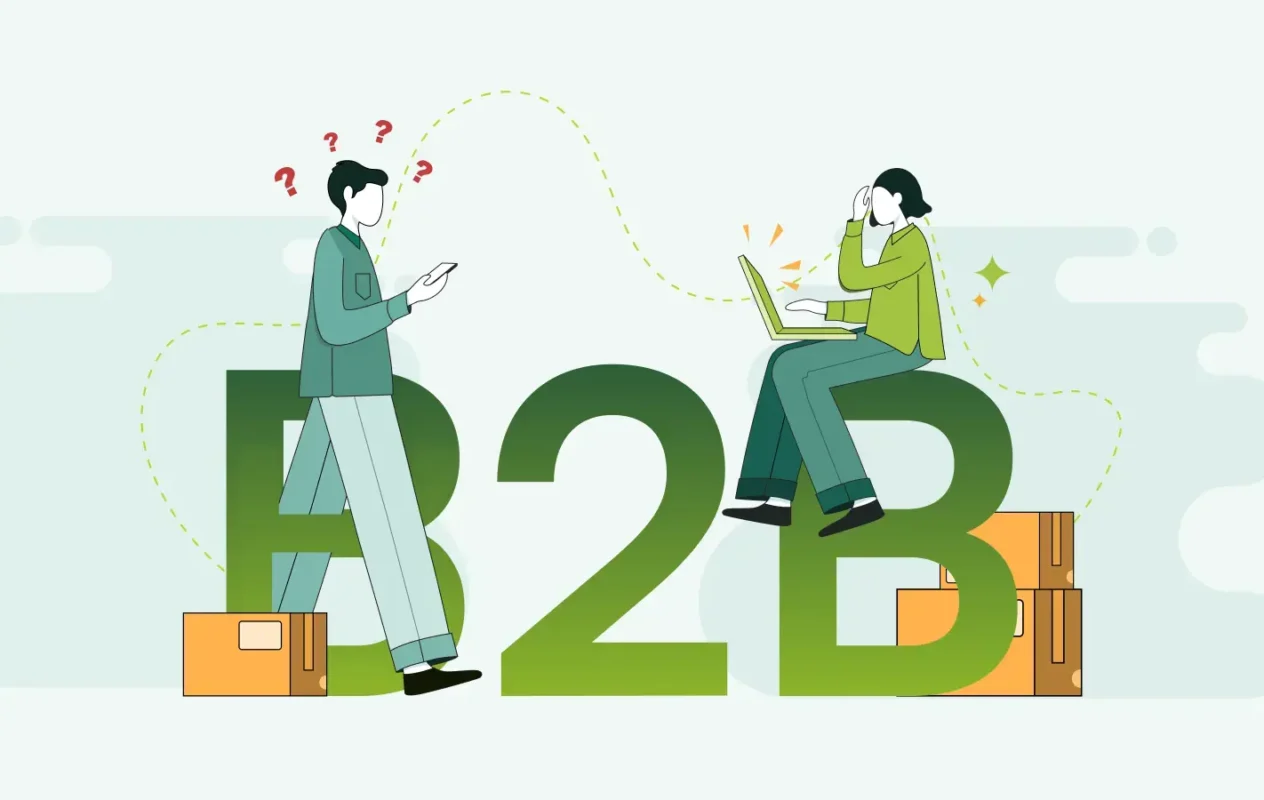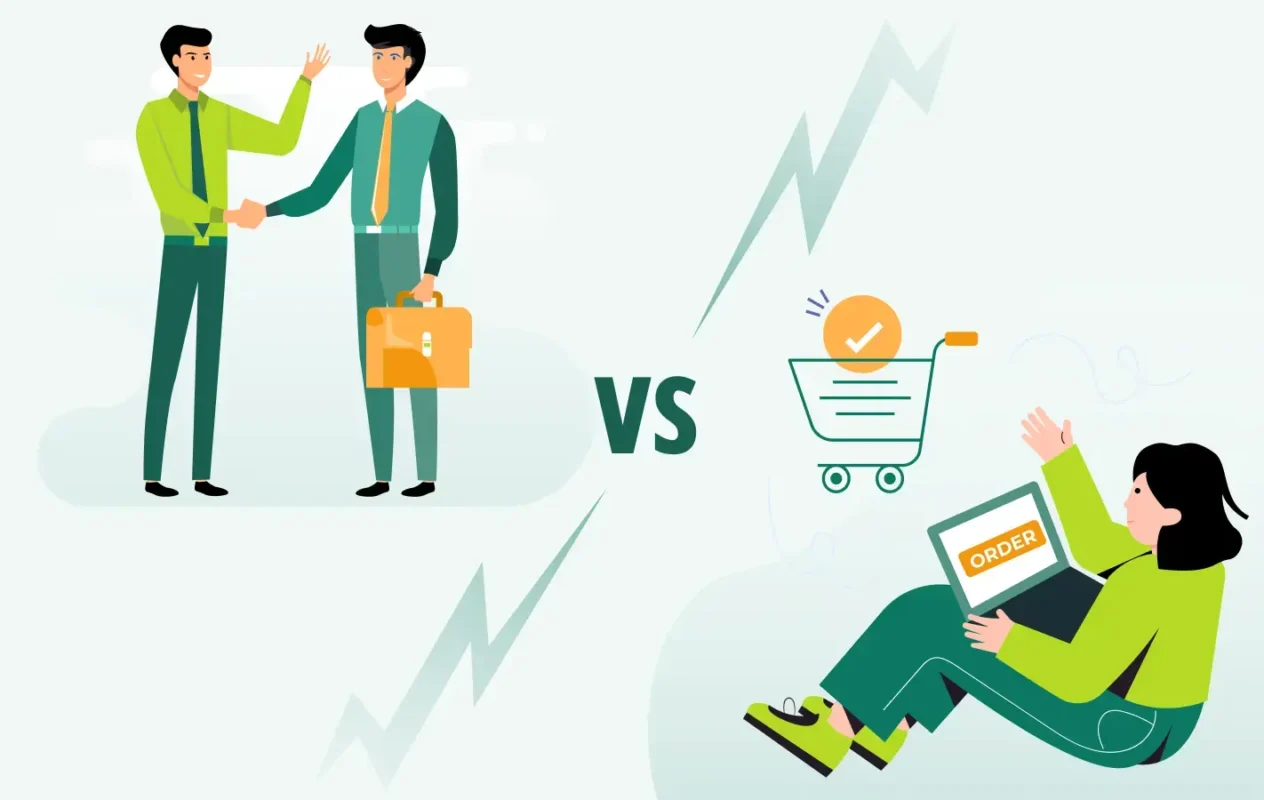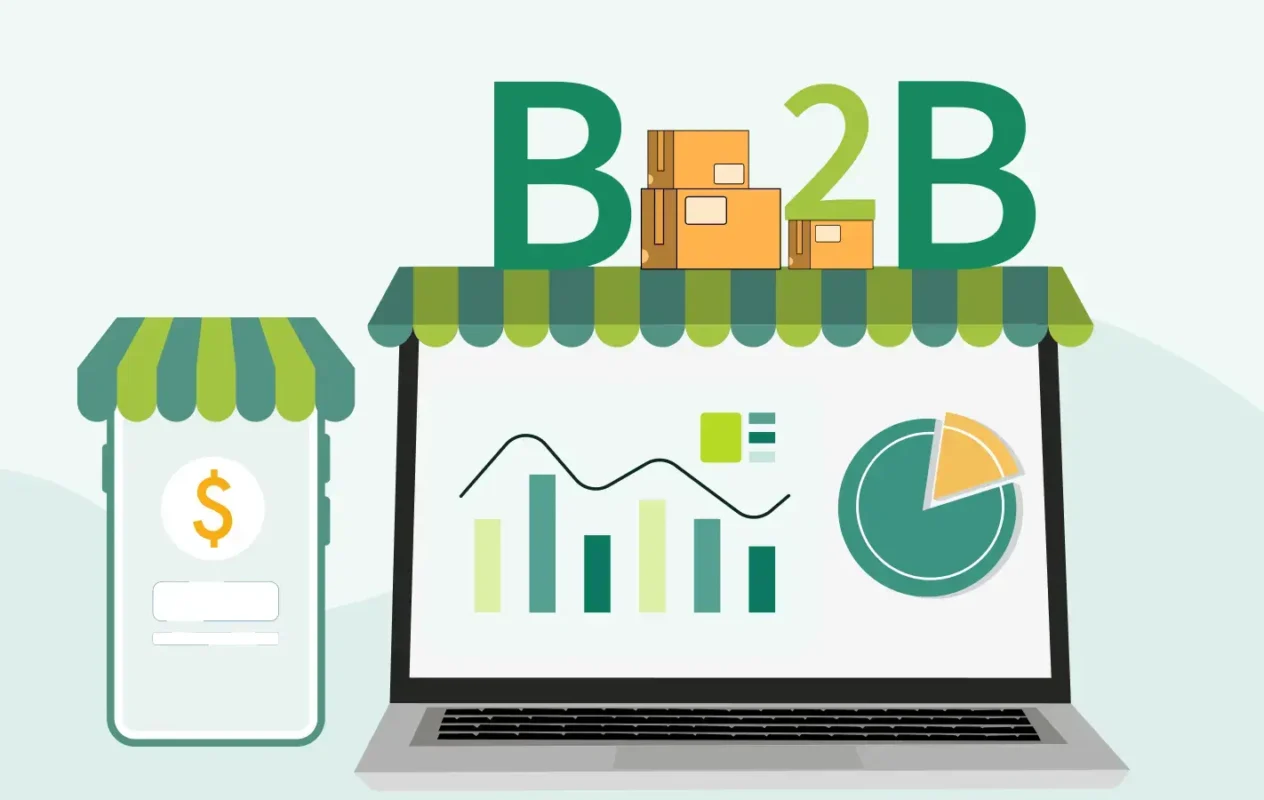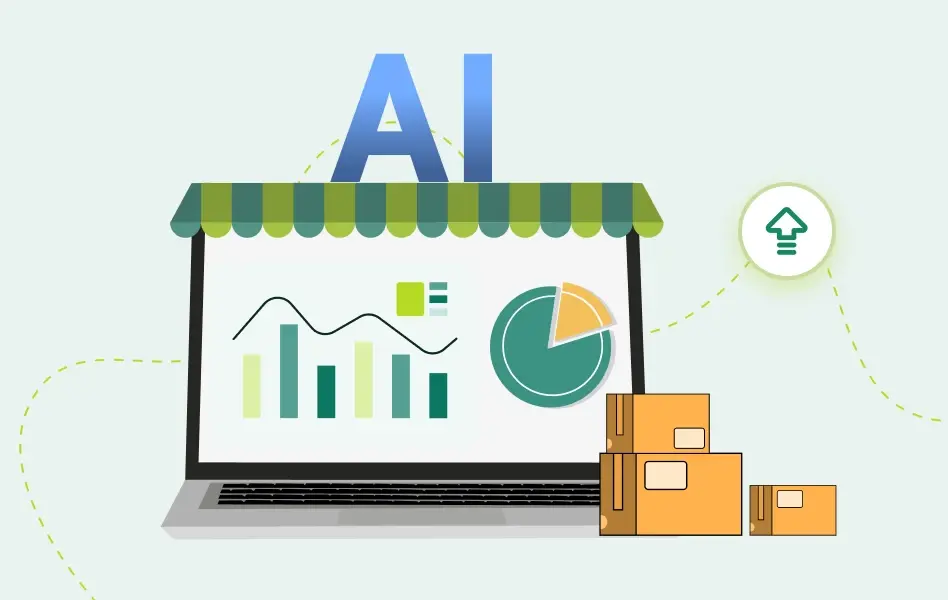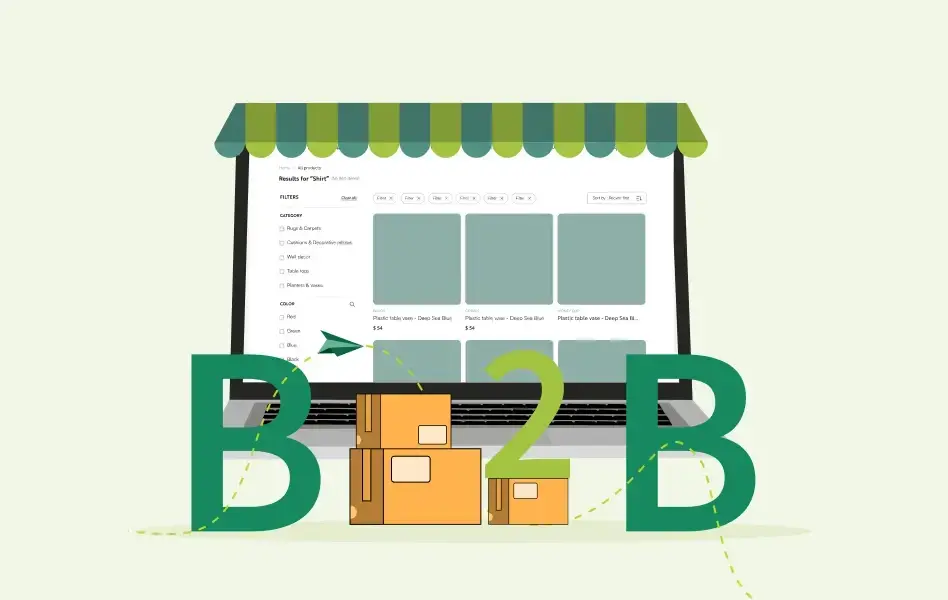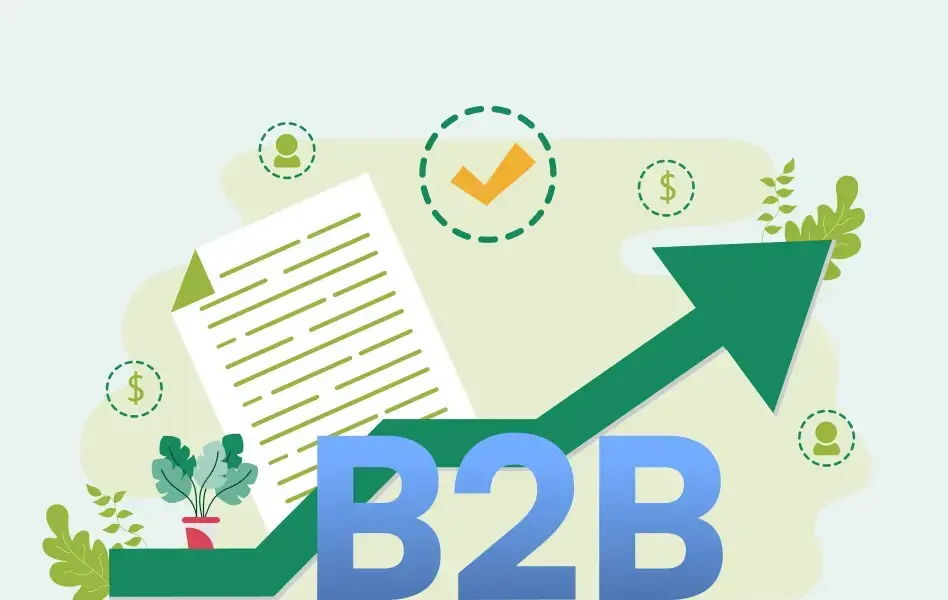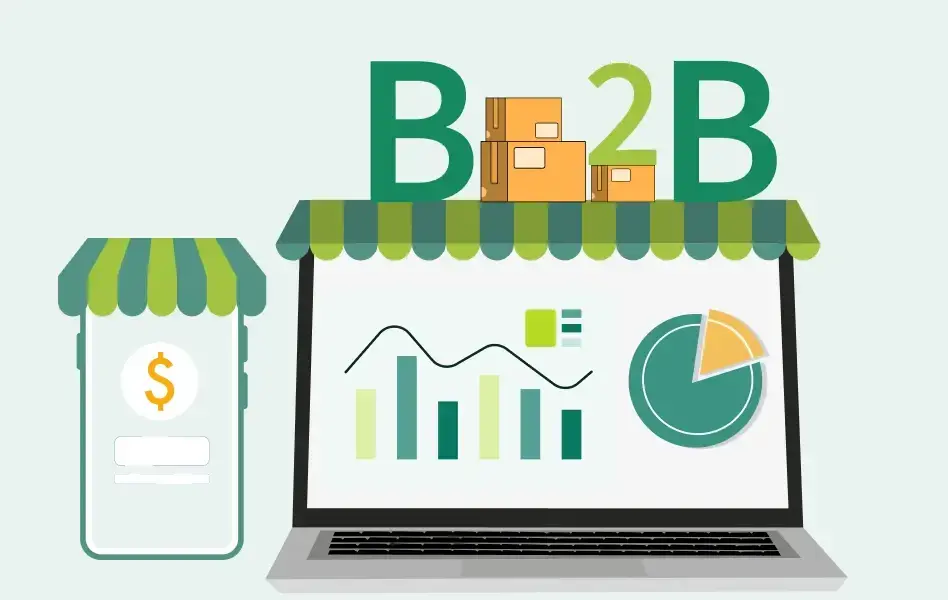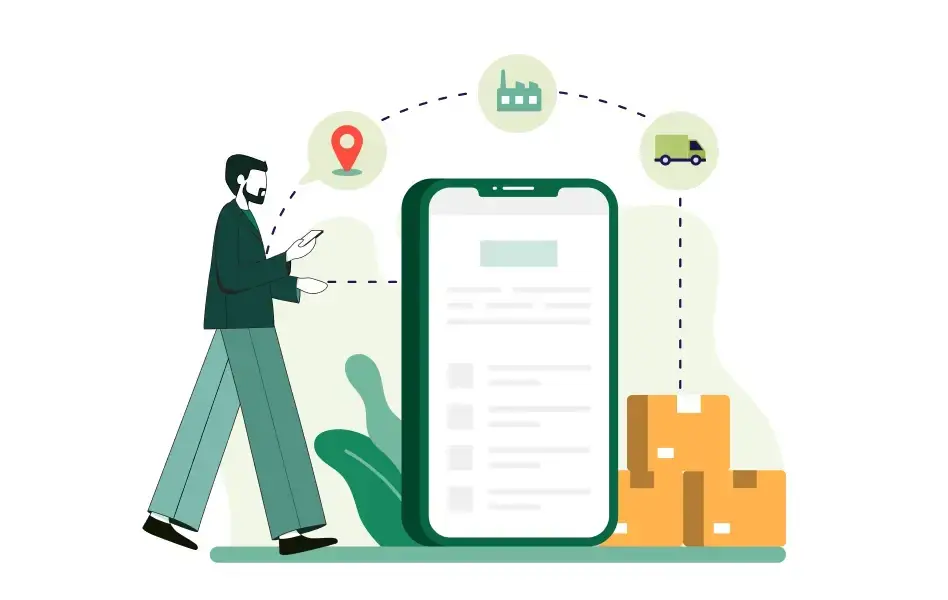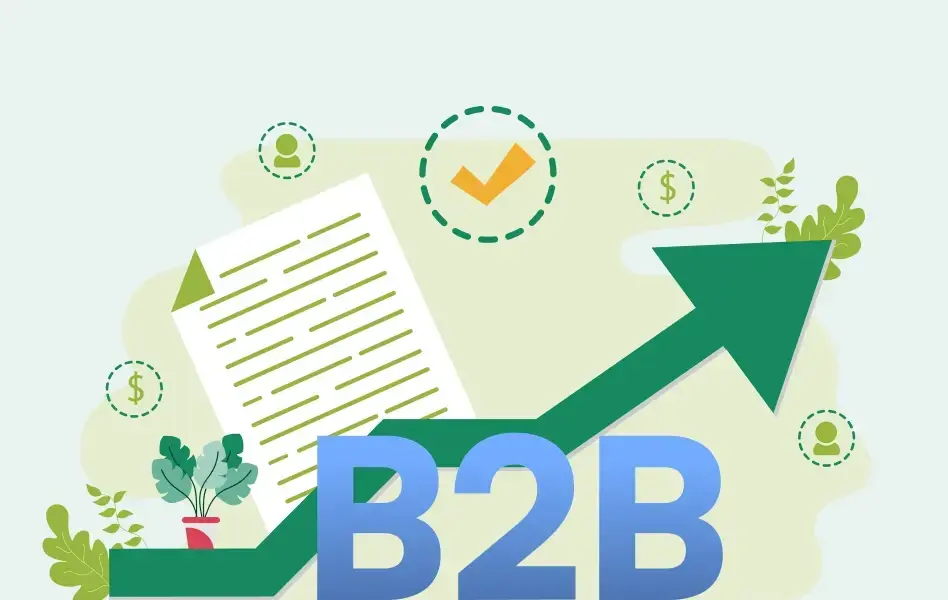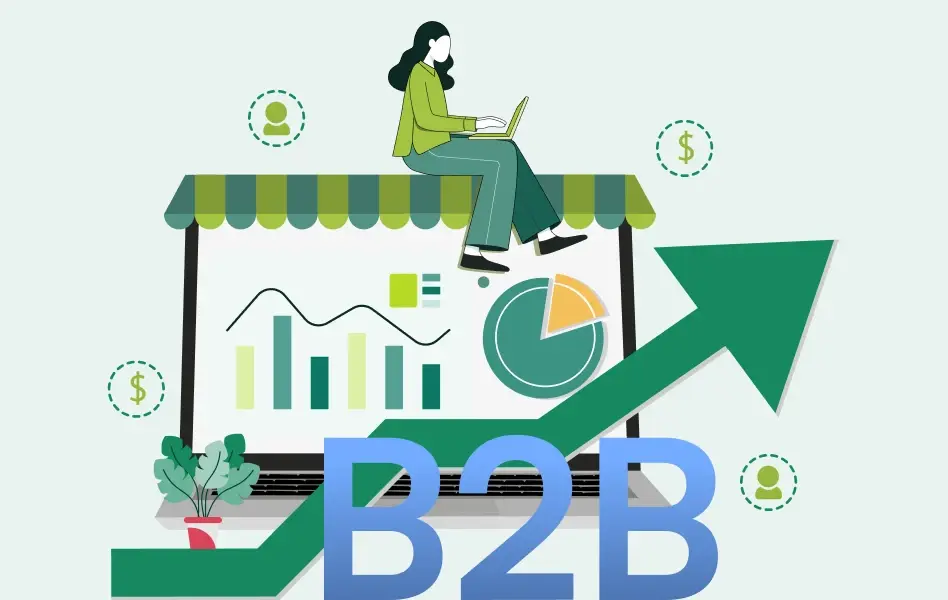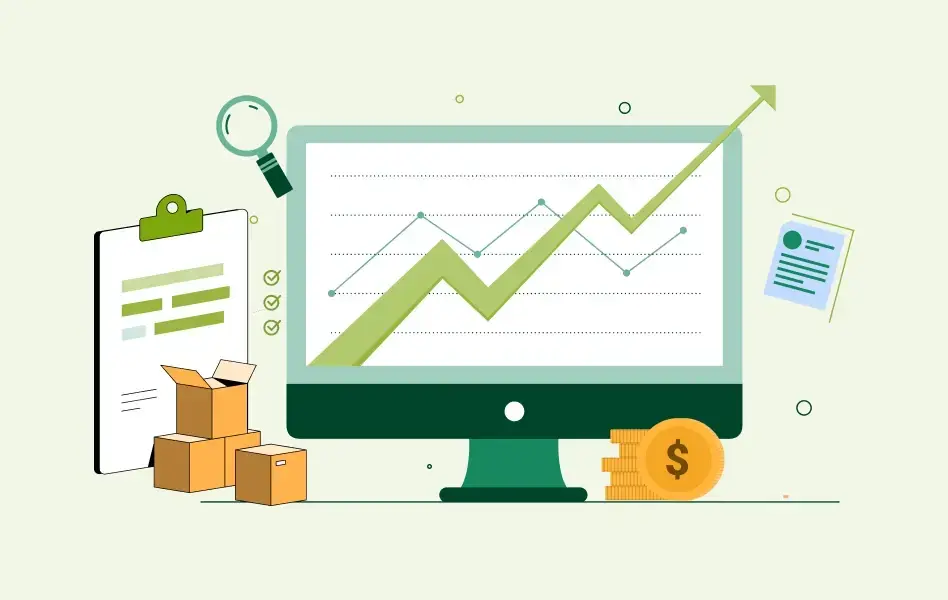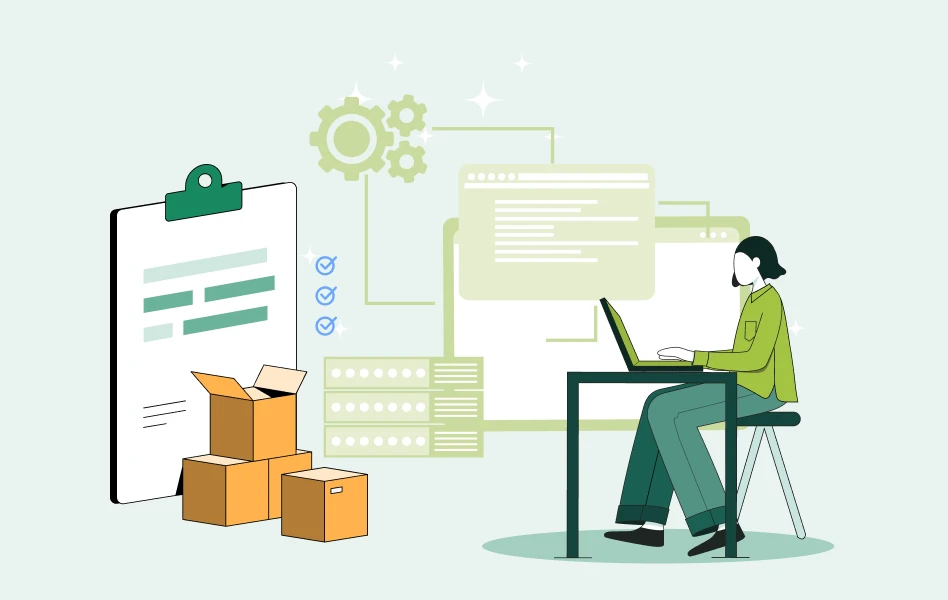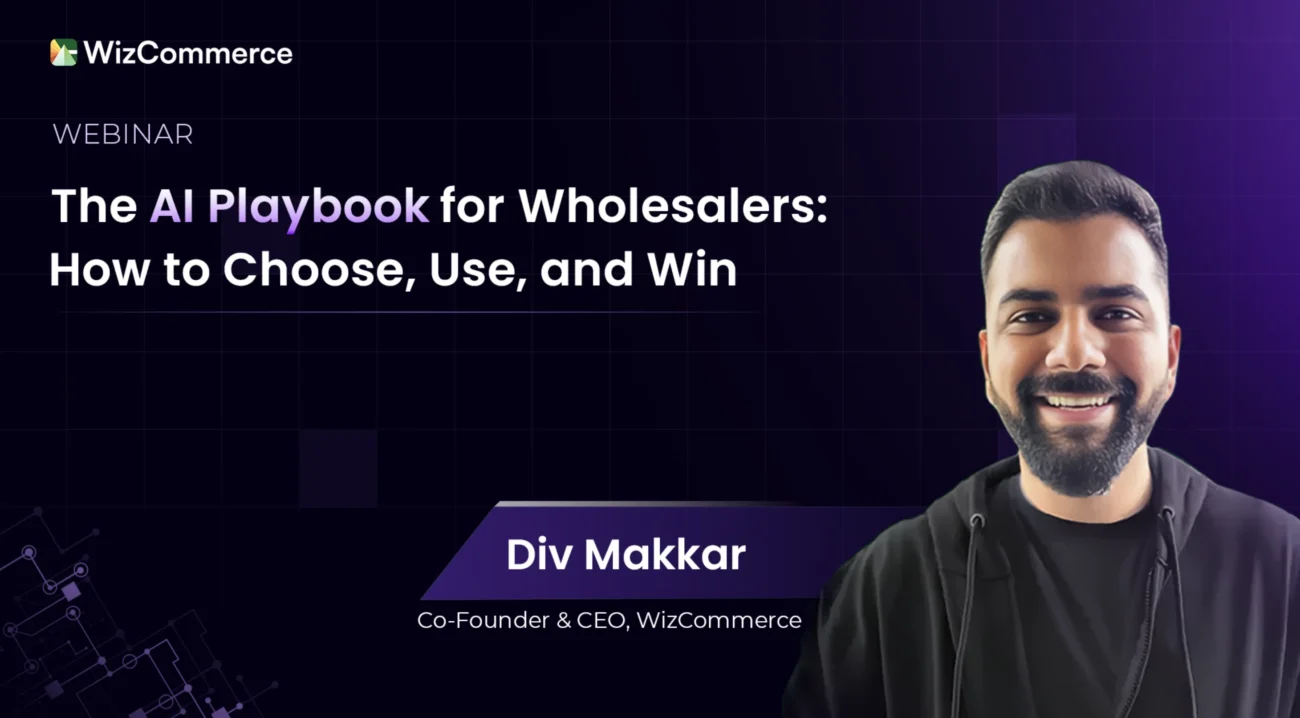Contents
- 1 How does B2B ecommerce wholesale work?
- 2 Is wholesale and B2B the same thing?
- 3 What are the different types of wholesalers in B2B commerce?
- 4 What are the benefits of the B2B wholesale platform?
- 5 How to identify the best B2B wholesale platform for your business?
- 6 Top 8 B2B wholesale platforms to scale online revenue
- 7 Choose the best B2B wholesale platform for lasting success
- 8 Frequently asked questions (FAQs) on B2B wholesale platforms
Finding the best B2B wholesale platform is crucial for businesses looking to scale operations and capture market share. The B2B ecommerce Market was valued at USD 19.34 Trillion in 2024 and is expected to reach USD 47.54 Trillion by 2030, rising at a CAGR of 16.17%.
This explosive growth makes choosing the right wholesale ecommerce platform more critical than ever. Unlike generic ecommerce solutions, the best wholesale ecommerce platform must handle complex B2B requirements like bulk pricing, custom catalogs, and sophisticated payment terms.
In this guide, we will compare the top 8 wholesale ecommerce solutions, break down key features that drive sales, and provide detailed pros, cons, and pricing to help you select the best B2B wholesale ecommerce platform for your business.
How does B2B ecommerce wholesale work?
B2B wholesale ecommerce is a digital business model where companies sell a wide range of products in bulk quantities to other businesses through online platforms. Unlike traditional retail where individual consumers buy single items, wholesale ecommerce focuses on high-volume transactions between businesses, creating a more efficient supply chain from manufacturers to end consumers.
In a typical B2B wholesale setup, you operate as the middle layer between manufacturers and retailers. You purchase large quantities of products directly from manufacturers at discounted rates, then resell these products to retailers, distributors, or other businesses at wholesale prices. This creates value for both ends, manufacturers can focus on production while retailers get access to diverse product catalogs without dealing with multiple suppliers.
Here are the key players of the B2B wholesale business model.
How digital transactions work:
The process begins when business customers browse your online catalog, which displays wholesale pricing, minimum order quantities, and bulk discounts. Unlike B2C shopping, these transactions involve complex pricing structures, credit terms, and custom catalogs tailored to specific customer segments.
Orders are typically larger, ranging from hundreds to thousands of units, and payment terms often include net 30 or net 60 arrangements rather than immediate payment.
Fulfillment and delivery:
Once orders are placed, products are shipped directly from your warehouse to the business customer’s location. Some wholesalers also offer dropshipping services, where products go directly from the manufacturer to the retailer’s customers. This model significantly reduces shipping costs per unit and allows for more efficient inventory management across the supply chain.
This complexity is why businesses need the best B2B wholesale platform to manage these intricate processes efficiently. The digital transformation of wholesale commerce has made these processes more streamlined, allowing businesses to operate 24/7, automate order processing, and provide real-time inventory updates to customers worldwide.
Is wholesale and B2B the same thing?
No, wholesale and B2B are not the same, though they’re closely related. B2B (Business-to-Business) is a broad category covering any transaction between businesses, while wholesale is a specific type of B2B focused on selling products in bulk quantities for resale. Think of wholesale as a subset of the larger B2B ecosystem.
| Aspect | B2B (Business-to-Business) | Wholesale |
| Scope | All business transactions | Specific B2B model |
| Products/Services | Software, services, equipment, materials, wholesale goods | Physical products only |
| Order Size | Any quantity (1 unit to bulk) | Large quantities (minimum orders) |
| Pricing | Various models (per-seat, hourly, project-based) | Volume-based discounts |
| End Purpose | Internal use or resale | Specifically for resale |
| Examples | SaaS software, consulting, manufacturing equipment | Clothing to retailers, food to restaurants |
| Payment Terms | Immediate, subscription, or credit terms | Often Net 30/60 terms |
All wholesale transactions are B2B, but not all B2B transactions are wholesale.
What are the different types of wholesalers in B2B commerce?
Wholesalers play a critical role in the B2B supply chain, acting as the bridge between manufacturers and retailers. They vary in their approach to distribution, pricing, and customer relationships, making it important to understand the different types when choosing a B2B wholesale model. Here are the main types of wholesalers you’ll encounter:
Type 1: Merchant wholesalers
Merchant wholesalers are the backbone of traditional distribution. They purchase large quantities of products directly from manufacturers and resell them to retailers, other businesses, or institutional buyers. These wholesalers typically handle storage, logistics, and distribution, ensuring products reach their destinations efficiently.
Key characteristics
- Buy in bulk, reducing per-unit costs.
- Manage inventory, warehousing, and order fulfillment.
- Often specialize in specific product categories or industries.
- Provide value-added services like packaging, labeling, and customer support.
Type 2: Agents and brokers
Unlike merchant wholesalers, agents and brokers don’t take ownership of the products they sell. Instead, they act as intermediaries, connecting shoppers and sellers and earning a commission on each transaction. This model is ideal for niche markets where direct ownership isn’t necessary or for businesses looking to minimize risk.
Key characteristics
- Facilitate transactions without taking physical possession of the goods.
- Earn a commission or fee based on sales volume.
- Often specialize in high-value or specialized markets.
- Provide market insights, customer connections, and negotiation support.
Type 3: Manufacturer’s sales channels
Some manufacturers choose to bypass traditional wholesalers and sell directly to businesses through online marketplaces or proprietary sales platforms. This model allows them to maintain full control over pricing, branding, and customer relationships, potentially reducing costs and increasing profit margins.
Key characteristics
- Direct-to-business sales, often through ecommerce platforms.
- Higher profit margins by eliminating middlemen.
- Full control over pricing, branding, and customer experience.
- Ideal for companies with strong brand recognition and digital infrastructure.
| Type | Inventory Ownership | Risk Level | Profit Margins | Capital Required |
| Merchant Wholesaler | ✅ Yes | High | Medium | High |
| Agents/Brokers | ❌ No | Low | Low (commission) | Low |
| Direct Manufacturer | ✅ Yes | Medium | High | Medium |
Each model serves different business needs and market conditions, with many companies using hybrid approaches to maximize reach and profitability. Regardless of your wholesale model, choosing the best B2B wholesale platform supports all three approaches effectively.
What are the benefits of the B2B wholesale platform?
Adopting a B2B wholesale platform is a strategic move to modernize your business, improve customer satisfaction, and achieve sustainable growth. Here are the benefits of B2B ecommerce wholesale:
1. Improved customer buying experience
By adopting a B2B wholesale ecommerce platform, you can provide a superior shopping experience. Due to their busy schedules, customers prefer shopping online in bulk from online stores, and the convenience of a 24/7 self-ordering system enhances their satisfaction. This shift in B2B buyer behavior underscores the importance of building a solid online presence.
2. Automated manual processes
Manual processes can be time-consuming and exhausting. Automation through wholesale ecommerce simplifies these tasks, allowing you to focus on growth. Automated systems handle customer interactions, inventory management, and billing, making your business more efficient and responsive, even when you’re not directly involved.
3. Expanded customer base
B2B ecommerce wholesale platforms eliminate the limitations of physical locations, enabling you to reach a global audience. Creating a powerful online presence allows you to attract customers from anywhere, enhance your brand identity, and generate new market opportunities without being confined to one place.
4. Utilization of real-time data
A significant benefit of a B2B wholesale platform is access to real-time data about customer behavior. This data helps you understand your customers’ preferences, optimize your marketing strategies, and customize your product offerings. Insights from your ecommerce platform can drive better business decisions and boost sales.
5. Selling through mobile devices
B2B ecommerce wholesale allows you to conduct business on the go. With internet-connected mobile devices, you can manage your operations from anywhere, providing flexibility and increasing productivity. This mobility ensures you can meet your business goals efficiently without being tied to a desktop.
6. Personalized pricing and custom catalogs
B2B wholesale platforms often include advanced pricing controls, allowing you to offer custom pricing, bulk discounts, and exclusive catalogs to different customer segments. This level of personalization not only increases customer loyalty but also boosts average order value by tailoring your offerings to specific buyer needs.
These advantages explain why businesses prioritize finding the best B2B wholesale platform for their operations. Now that you know the perks of a B2B ecommerce platform, including reaching more customers and being cost-effective, let’s talk about how to choose the right B2B ecommerce platform to maximize these benefits.
How to identify the best B2B wholesale platform for your business?
Not all digital commerce platforms are built for wholesale operations. The right B2B wholesale platform must handle the unique complexities of wholesale business, from custom pricing and bulk orders to complex customer hierarchies and payment terms. Before investing in a solution, use these criteria to identify the best B2B wholesale platform that aligns with your business requirements.
B2B-Specific Functionality:
- Custom pricing tiers and volume discounts
- Customer-specific catalogs and product visibility
- Minimum order quantities and bulk ordering tools
- Multi-user accounts with permission controls
- Customer approval and onboarding workflows
Technical Integration:
- Native ERP, CRM, and accounting system connections
- Real-time inventory synchronization
- Automated order processing workflows
- API access for custom integrations
- Mobile-responsive design for sales teams
Operational Requirements:
- Large catalog management (1000+ SKUs)
- Quote generation and approval processes
- Net payment terms (30/60/90 days)
- Multiple currency and payment method support
- Advanced search and filtering capabilities
Business Support:
- Transparent pricing with no hidden transaction fees
- Dedicated implementation and ongoing support
- Data migration assistance from existing systems
- Comprehensive reporting and analytics tools
- Scalability for business growth
Armed with these criteria, let’s dig into the world of B2B wholesale ecommerce platforms to discover which ones might be the best fit for your specific needs.
Top 8 B2B wholesale platforms to scale online revenue
Selecting the right wholesale platform can transform your business operations and customer relationships. While many solutions exist, they vary significantly in their approach to B2B-specific functionality, ease of implementation, and long-term scalability. Here’s a comprehensive comparison of the leading platforms available today. Our analysis of the best B2B wholesale platform options reveals significant differences in functionality and value.
1. WizCommerce
Ideal for: Wholesalers, manufacturers, and distributors seeking comprehensive B2B functionality with measurable ROI
When evaluating options for the best B2B wholesale platform, WizCommerce consistently outperforms competitors. WizCommerce is a B2B wholesale platform built specifically for wholesale operations rather than adapted from B2C solutions. The platform handles complex wholesale requirements including multi-tier pricing, customer hierarchies, bulk ordering, and flexible payment terms that are standard in wholesale commerce.
The platform integrates AI-powered features for product recommendations and customer insights with standard wholesale functionality like custom catalogs, approval workflows, and ERP integrations. WizCommerce serves manufacturers, distributors, and wholesalers looking to digitize their operations and scale their B2B sales processes efficiently.
Key features
WizAI smart recommendations – Industry-first AI engine that analyzes customer purchase history, buying patterns, and market trends to deliver personalized product recommendations and identify high-priority sales opportunities. The system automatically suggests complementary products, alerts you to customers ready for upselling, and helps prevent lost sales through intelligent inventory management.
Advanced customer management – Comprehensive self-service portals that provide customers with complete visibility into order history, real-time shipment tracking, invoice management, and account status. Automated workflows handle order confirmations, shipping notifications, and payment reminders, reducing support burden while improving customer satisfaction.
Infinite pricing flexibility – Create unlimited customer-specific price lists, volume discount tiers, and promotional pricing structures that automatically adjust based on order quantities, customer segments, or purchase history. The system supports complex wholesale scenarios including contract pricing, seasonal adjustments, and territory-based rates.
Seamless enterprise integration – Native connections to leading ERP systems (QuickBooks, NetSuite, Business Central), CRMs (Salesforce, HubSpot), and inventory management platforms enable real-time data synchronization that eliminates manual processes and ensures accuracy across all business systems.
Pros
- Purpose-built for wholesale eliminates need for costly plugins, workarounds, or platform limitations
- Fastest implementation in the industry with dedicated support and data migration assistance
- Proven ROI with measurable improvements: reduced order processing time, increased average order values, and improved customer retention
- AI-powered features provide competitive advantages not available on generic platforms
- Scales seamlessly from startup to enterprise without requiring platform migration or major reconfigurations
- Transparent pricing with no transaction fees or hidden costs that impact margins
- Industry-leading customer support with dedicated account management and strategic guidance
Cons
- Advanced features may require brief learning curve for teams transitioning from basic platforms
| Real-world success with WizCommerce
Indian Touch of Gallup, a prominent jewelry wholesaler, struggled with the limitations of Shopify and Wix as their B2C-focused platforms couldn’t keep up with their complex wholesale needs. By switching to WizCommerce, they transformed their operations, achieving $279,000 in new revenue, 50+ monthly leads, and a scalable digital infrastructure within just five months. Read the full case study here to see how WizCommerce can revolutionize your wholesale business. |
2. Magento
Ideal for: Large businesses looking to scale their ecommerce operations and handle significant volumes of wholesale transactions.
Magento offers a comprehensive ecommerce solution that can accommodate both B2B and B2C operations through its enterprise-level package. The platform provides extensive customization capabilities but requires significant technical resources to implement and maintain effectively.
Key features
- B2B and B2C integration within a single platform installation
- Advanced customer account management with hierarchical structures
- Flexible payment options including purchase orders and credit terms
- Extensive third-party extension marketplace for additional functionality
Pros
Magento provides strong customization capabilities for businesses with unique requirements and benefits from a large community of developers and support resources. Adobe backing ensures enterprise-level support and resources for complex implementations.
Cons
B2B features are only available in the expensive enterprise edition, and the complex setup requires dedicated technical expertise. While Magento offers enterprise features, it falls short of being the best B2B wholesale platform due to complexity and costs. The platform has high total cost of ownership including hosting and maintenance, with performance issues common when handling large catalogs.
3. Shopify Plus
Ideal for: Medium to large businesses that need a robust, easy-to-use platform with excellent integration capabilities and quick setup.
Shopify Plus extends the popular B2C platform with basic B2B functionality, offering familiar interfaces and quick setup processes. While easy to implement, it requires workarounds for many standard wholesale requirements.
Key features
- Unified dashboard for managing B2B and B2C sales channels
- Basic wholesale pricing and customer group management
- Strong app ecosystem for extending platform capabilities
- Mobile-responsive design with intuitive user interfaces
Pros
The platform offers quick implementation with minimal technical requirements and provides a familiar interface for teams already using Shopify. Reliable hosting and platform maintenance are included in the service.
Cons
Though popular, Shopify Plus lacks the specialized features needed in the best B2B wholesale platform. Shopify Plus has limited B2B functionality compared to dedicated wholesale platforms, and transaction fees add to operational costs over time. The platform requires multiple apps to achieve comprehensive wholesale features, and customization options are restricted.
4. BigCommerce B2B Edition
Ideal for: Businesses needing extensive integrations with third-party apps that can manage B2B and B2C operations from a unified platform.
BigCommerce provides a cloud-based solution with built-in B2B features and extensive API capabilities. The platform focuses on technical flexibility but often requires significant customization to meet specific wholesale requirements.
Key features
- Native B2B functionality including customer groups and pricing rules
- Comprehensive API for custom integrations and development
- Built-in multi-currency and international shipping capabilities
- Scalable infrastructure designed for high-volume operations
Pros
BigCommerce offers no transaction fees on higher-tier plans and provides strong API capabilities for custom development projects. The platform includes built-in SEO and marketing tools as standard features.
Cons
The platform has limited customization options without extensive development work and features a complex pricing structure with multiple add-on costs. Advanced features require technical expertise to implement effectively.
5. WooCommerce
Ideal for: Small businesses using WordPress and looking for an affordable, easy-to-use ecommerce solution.
WooCommerce transforms WordPress websites into ecommerce stores through plugin architecture. While cost-effective initially, achieving comprehensive B2B functionality requires multiple additional plugins and ongoing maintenance.
Key features
- WordPress integration for unified content and commerce management
- Extensive plugin library for extending B2B functionality
- Open-source flexibility for unlimited customization possibilities
- Basic wholesale pricing through third-party extensions
Pros
WooCommerce offers low initial costs with a free base platform and benefits from a large community of WordPress developers. Users maintain complete control over hosting and data management with open-source flexibility.
Cons
The platform requires multiple plugins to achieve basic B2B functionality and is limited to the WordPress ecosystem with associated constraints. Performance issues are common with large product catalogs, and ongoing maintenance and security updates are required.
6. PrestaShop
Ideal for: Startups and small businesses seeking a free, customizable ecommerce wholesale platform.
PrestaShop offers an open-source ecommerce solution with basic B2B capabilities through additional modules. While free to download, implementing comprehensive wholesale functionality often requires extensive customization.
Key features
- Open-source platform with community-driven development
- Multi-store management for different business segments
- Basic customer group pricing and catalog management
- Multilingual and multi-currency support for international operations
Pros
PrestaShop has no licensing fees for core platform usage and provides full access to source code for unlimited customization. The platform benefits from an active community providing support and extensions.
Cons
Limited built-in B2B functionality requires extensive customization, and the platform requires separate hosting and technical maintenance. Performance optimization requires technical expertise to implement effectively.
7. NetSuite Commerce
Ideal for: Medium to large enterprises needing an integrated ERP and ecommerce wholesale solution.
NetSuite SuiteCommerce integrates directly with NetSuite ERP, providing unified business management but requiring full NetSuite implementation. The solution works well for existing NetSuite customers but represents significant investment.
Key features
- Native integration with NetSuite ERP and CRM systems
- Real-time data synchronization across all business functions
- Advanced customer portal with account management capabilities
- Comprehensive reporting and analytics through NetSuite platform
Pros
Seamless integration eliminates data silos for NetSuite users and provides enterprise-grade security and compliance features. Oracle NetSuite offers professional services and support for implementation and ongoing management.
Cons
The platform requires full NetSuite implementation and associated costs, with a complex setup process requiring professional implementation services. High total cost of ownership includes ERP licensing and ongoing maintenance fees.
8. Shift4Shop (formerly 3DCart)
Ideal for: Small to medium-sized businesses looking for a straightforward ecommerce solution with transparent pricing.
Shift4Shop provides a straightforward ecommerce solution with basic B2B features included in standard packages. While easy to set up, the platform lacks advanced wholesale functionality needed for complex operations.
Key features
- Built-in B2B pricing and customer account management
- Integrated payment processing with multiple gateway options
- Basic inventory management and order processing tools
- Template-based design system with customization options
Pros
Shift4Shop offers transparent pricing without transaction fees and built-in payment processing that reduces complexity. The platform features a user-friendly interface that requires minimal training for new users.
Cons
The platform has limited scalability for growing wholesale operations and basic B2B functionality compared to specialized platforms. Fewer integration options are available with existing business systems.
When evaluating these platforms, consider your long-term growth plans and the complexity of your wholesale operations. While several options exist, choosing a purpose-built solution like WizCommerce eliminates the compromises and ongoing costs associated with adapting B2C-focused platforms for wholesale use.
Choose the best B2B wholesale platform for lasting success
While this guide has explored eight different solutions, the clear distinction in choosing the right B2B wholesale platform emerges between purpose-built wholesale platforms and adapted B2C solutions.
Businesses seeking comprehensive B2B functionality, seamless integrations, and measurable ROI consistently find better outcomes with dedicated platforms like WizCommerce that were designed specifically for wholesale operations from the ground up.
Your platform choice will determine your operational efficiency, customer satisfaction, and growth potential for years to come. Rather than settling for compromises and workarounds, invest in a solution that accelerates your wholesale success without limitations. The right technology foundation isn’t just about meeting today’s needs, it’s about positioning your business to thrive as the B2B ecommerce market continues its explosive growth.
Ready to transform your wholesale operations? Schedule a demo with WizCommerce to see how purpose-built B2B functionality can drive measurable results for your business.
Frequently asked questions (FAQs) on B2B wholesale platforms
What is a B2B wholesale platform?
A B2B wholesale platform is an ecommerce solution designed specifically for businesses that sell products in bulk to other businesses. It includes features like tiered pricing, customer-specific catalogs, minimum order quantities, and complex payment terms that are essential for wholesale operations.
What is a B2B ordering platform?
A B2B ordering platform is a digital solution that enables businesses to place orders with their suppliers or wholesalers online. It typically includes features like bulk ordering, custom pricing, approval workflows, and integration with business systems to streamline the procurement process.
Which B2B platform is best?
WizCommerce stands out as the best B2B platform for wholesale operations due to its purpose-built functionality, AI-powered features, and seamless ERP integrations. Unlike adapted B2C platforms, it handles complex wholesale requirements like multi-tier pricing and bulk ordering natively. This makes WizCommerce the best B2B wholesale platform for businesses serious about wholesale success.
Which platform is best for wholesale business?
WizCommerce is the best platform for wholesale businesses because it was designed specifically for wholesale operations rather than retrofitted from B2C solutions. It offers comprehensive features including custom pricing, customer segmentation, and automated workflows without requiring costly plugins or customizations.
What is the most popular B2B wholesale marketplace?
Alibaba is the most popular B2B marketplaces globally. However, for businesses looking to build their own wholesale platform rather than sell on third-party marketplaces, dedicated solutions like WizCommerce provide better control and customization.


